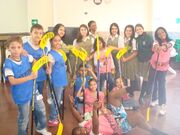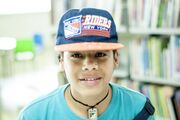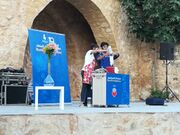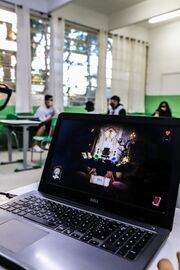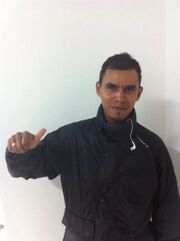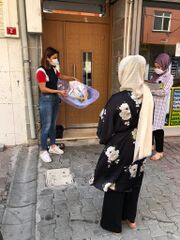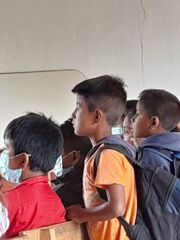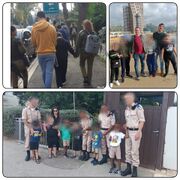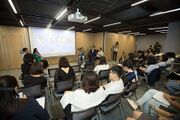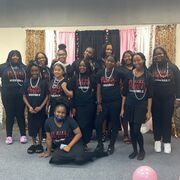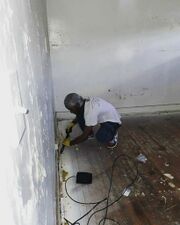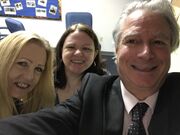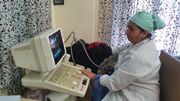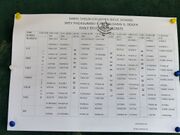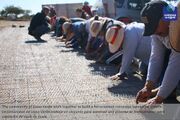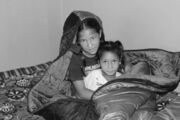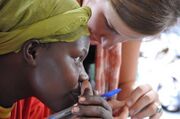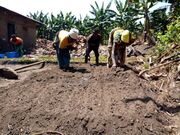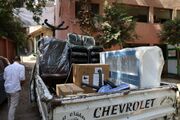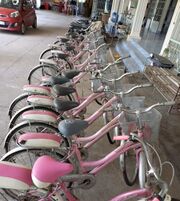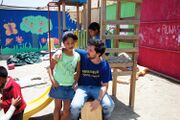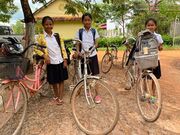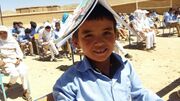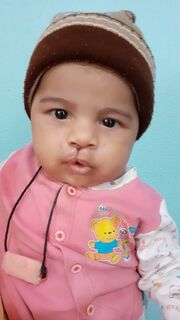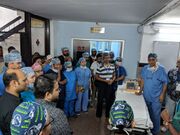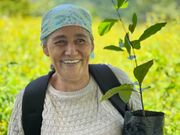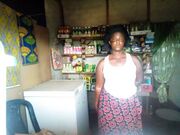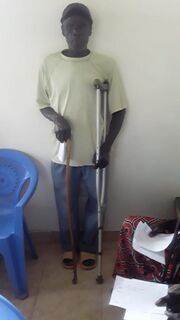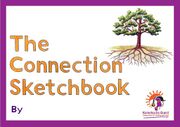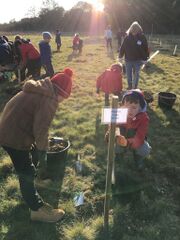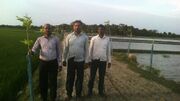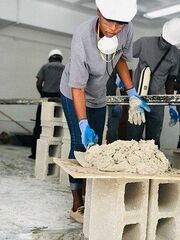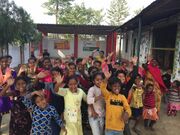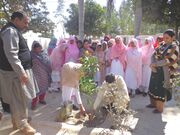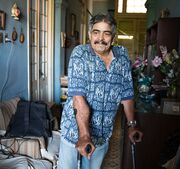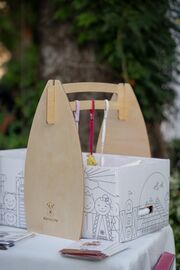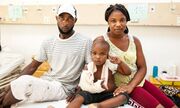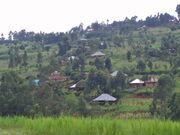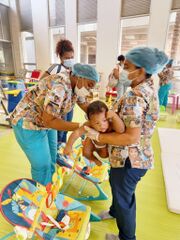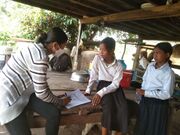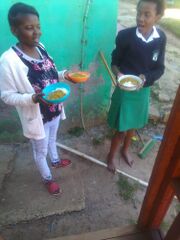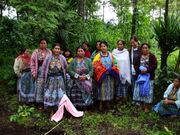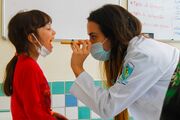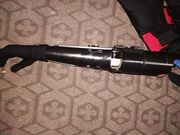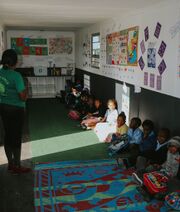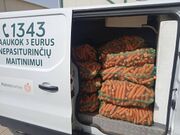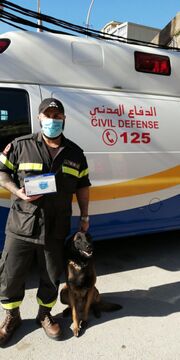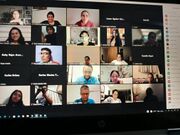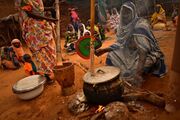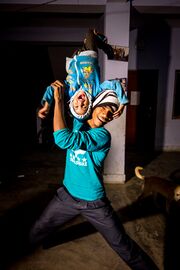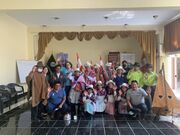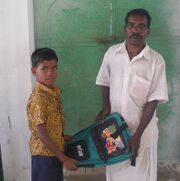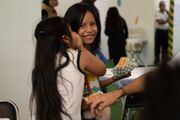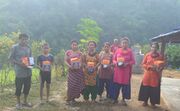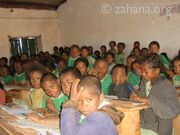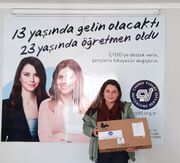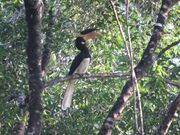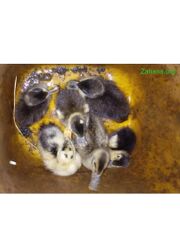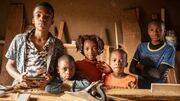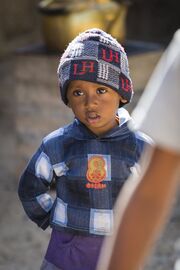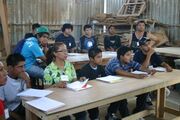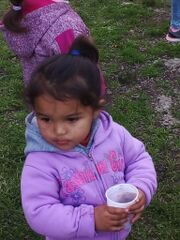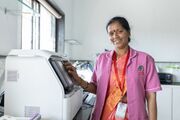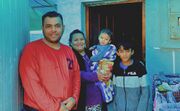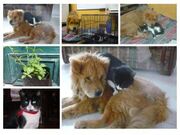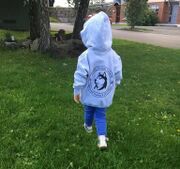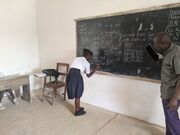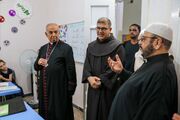View table: Project
Table structure:
- Description - Wikitext
- Problems - List of Integer, delimiter: ,
- Solutions - List of Integer, delimiter: ,
- Region - Text
- country - Text
- state - Text
- city - Text
- coordinate - Coordinates
- scraped_url - Text
- scraped_from - Text
- feature_image - File
- images - List of File, delimiter: ,
- videos - List of URL, delimiter: ,
- references_list - List of URL, delimiter: ,
- additional_documentation - List of URL, delimiter: ,
- organization_id - Integer
- geo_id - Text
This table has 5,460 rows altogether.
| Page | Description | Problems | Solutions | Region | country | state | city | coordinate | scraped url | scraped from | feature image | images | videos | references list | additional documentation | organization id | geo id |
|---|---|---|---|---|---|---|---|---|---|---|---|---|---|---|---|---|---|
| " 52 YEARS PROTECTING CHILDREN IN COLOMBIA" | Since COVID, Colombia has had an overwhelming increase in the number of children living in poverty. Since 1970, this project has been seeking to protect children at risk of abuse as well as help them and their families daily with education,food, psychosocial support,recreation,health,prevention of child pregnancy and guidance. We also work to keep them away from the dangers of being on the streets, child labor, and other forms of child abuse. Every year more than 200 children receive support.
ChallengeColombia is a country with high levels of social and economic inequality. Almost 30% of the population is classified as living in conditions of poverty,10% are classified as extreme poverty, which is linked to situations of social and political violence and family, child abandonment,displacement,discrimination, child labor, lack of study opportunities and other situations that directly affect many children and teens. The state of emergency that COVID-19 instated only made these conditions worse Long-Term ImpactEach child can have access to education, medical care, nutrition and recreation so that they can have a childhood free of child labor and abuse, with support for their education, generating rights prevention strategies that contribute to the strengthening of families and social networks where children reach their integral human development. Since 1970 more than 6000 children have received attention and love,taking them out of the risks of living in streets to develop a successful life project. References
Project Gallery |
204,377 | Colombia | https://www.globalgiving.org/projects/leveling-the-field-for-underserved-colombian-kids/ | GlobalGiving | [[File:ph_19468_182152.jpg| • File:ph_19468_70134.jpg| • File:ph_19468_70138.jpg| • File:ph_19468_184670.jpg|Food support for families for Covid19 • File:ph_19468_70132.jpg| • File:ph_19468_70133.jpg| • File:ph_19468_70135.jpg| • File:ph_19468_70136.jpg| • File:ph_19468_70137.jpg| • File:ph_19468_70139.jpg| • ]] | 40,883 | 3686110 | |||||||||
| " Home & Education for abused children in Colombia | We support children who are victims of domestic violence, sexual abuse, and neglect such as malnutrition. For more than 51 years we have provided LOVE, home, EDUCATION, care, FOOD, clothing, recreation and psychosocial support to abandoned or abused children, through a life skills program. More than 7,000 children have received shelter and care that lead to a happy childhood. With your support, more boys can have a home and positive experiences that help them grow up to be good men.
ChallengeViolence is present in the lives of most of our children as a regular part of their environment. There is an especially high presence of violence within friendships and families. Every day the numb er of children who are sexually abused, abandoned ,victims of violence, malnutrition or child labor increases. Thousands of children live in extreme poverty, with poor public education and a high number of violent deaths that leave the country's children in a tragic situation. Long-Term ImpactFor more 50 years, we have welcomed more than 7000 at-risk children.Guaranteeing their rights, they have received full protection, psychological support,skills tutoring, EDUCATION and advice to develop their potential to REDUCE THE INEQUALITY gap they are faced with. We work to get them away from dangers that lurk their streets, drugs and sexual abuse, providing them with a safe home and OPPORTUNITIES to develop their life skills. We will open a new foster home to protect more abandoned children References
Additional Documentationhttps://www.globalgiving.org//pfil/15286/projdoc.pdf Project Gallery |
204,190 | Colombia | https://www.globalgiving.org/projects/give-shelter-and-care-to-homeless-colombian-children/ | GlobalGiving | [[File:ph_15286_53353.jpg| • File:ph_15286_53347.jpg|Photo 8 • File:ph_15286_53344.jpg|Photo 4 • File:ph_15286_132261.jpg|group • File:ph_15286_53345.jpg|Photo 5 • File:ph_15286_157614.jpg| • File:ph_15286_53341.jpg|Photo 1 • File:ph_15286_53342.jpg|Photo 2 • File:ph_15286_53343.jpg|Photo 3 • ]] | 40,883 | 3686110 | |||||||||
| "APORTA" Participatory Donation Project | Aporta is a participatory donation program motivated by the Funcomass Foundation, which unites different sectors of society with a common purpose: to raise the quality of life of thousands of Dominicans who are in conditions of poverty and extreme poverty.
ChallengeIt is estimated that in the Dominican Republic poverty will affect 24.7% of the population this year, increasing more than four percentage points in relation to 20.3% in previous years. Meanwhile, it is estimated that extreme poverty impacts around 700,050 Dominicans. This context endangers the basic health, nutrition and education conditions of families in rural areas, neighborhoods and impoverished sectors. Children are especially exposed given their vulnerability. Long-Term Impact800 families from the Dominican Republic will be impacted References
Project Gallery |
205,227 | Dominican Republic | https://www.globalgiving.org/projects/aporta-participatory-donation-project/ | GlobalGiving | [[File:ph_51300_198342.jpg| • File:ph_51300_198343.jpg| • File:ph_51300_198344.jpg| • File:ph_51300_198345.jpg| • File:ph_51300_198346.jpg| • File:ph_51300_198347.jpg| • File:ph_51300_198348.jpg| • File:ph_51300_198349.jpg| • ]] | 133,490 | 3508796 | |||||||||
| "Beyond Museum Walls" Project | The Beyond Museum Walls project is a mobile scientific educational project that includes science-based shows delivered to children in the form of comedy-drama. This project targets children in hospitals, refugee camps and host communities in Jordan.
ChallengeCan you imagine that the quarantine life the world living because of COVID-19 crises is the usual life of some, or actually is way better? The crisis and the war in Syria had many negative effects on refugee children, including long out-of-school periods and unstable and difficult living conditions. On the other hand, many children in hospitals have been forced by their health conditions to leave school for treatment due to serious and terminal diseases, as patients with cancer or war-wounded. Long-Term ImpactRaising hope and curiosity! This project draws a smile on the faces of children in difficult conditions and brings learning to children during chemotherapy sessions, to others who have not been to school because of their refugee status and others who have been isolated in their host communities. The program contributes to helping refugee and sick children end their isolation and to integrating them in society. References
Additional Documentationhttps://www.globalgiving.org//pfil/48014/projdoc.docx Project Gallery |
205,273 | Jordan | https://www.globalgiving.org/projects/beyond-museum-walls-project/ | GlobalGiving | [[File:ph_48014_184872.jpg| • File:ph_48014_184873.jpg| • File:ph_48014_184874.jpg| • File:ph_48014_184875.jpg| • File:ph_48014_184876.jpg| • File:ph_48014_184877.jpg| • ]] | 62,143 | 248816 | |||||||||
| "COOL MIND"- A Study of Mental Health in Schools | The Alpha Lumen Institute and its team of researchers in partnership with scientists Dr. Leonardo Batista (Brown University) and Tauily Taunay (UNIFOR), have developed the project "Cool Mind", which associates online activities of orientation, a digital platform and a game, with the goal of mapping students between 11 and 18 years, which present signs of anxiety symptoms, depression or even, possible increased risk of suicide, so that one can act in a preventive way on these problems.
ChallengeDepression is the most common psychiatric pathology, affecting about 300 million people worldwide, and is considered a chronic and recurrent medical condition. During the pandemic mental health disorders increased by 25% worldwide, according to the WHO(World Health Organization). Social isolation and the challenges of losing loved ones has amplified the number of cases of depression in children and adolescents and accounts for about 75% of psychiatric hospitalizations in this age group. Long-Term ImpactThe application of the project in schools will make it possible to broaden the dialogue about mental health and depression and help to preventively identify students who show signs of the disease so that they can get referral to specialized help. The project will change the school's understanding of the disease, and can help families to act preventively, and can contribute significantly to an improvement in the mental health of our young people and also help to save many lives References
Project Gallery |
204,983 | Brazil | https://www.globalgiving.org/projects/cool-mind-a-study-of-mental-health-in-schools/ | GlobalGiving | [[File:ph_55308_218202.jpg|. • File:ph_55308_218203.jpg|. • File:ph_55308_218204.jpg|Orientation • File:ph_55308_218205.jpg|children at the game • File:ph_55308_218206.jpg|Hands on • File:ph_55308_218207.jpg|Triskell Logo • File:crianas_computadores_3_Large.jpeg| • File:criancas_computadorees_3_Large.jpeg| • File:salabaus_Large.jpg| • ]] | 38,868 | 3469034 | |||||||||
| "Education and opportunities for vulnerable youth" | Many vulnerable youth in Colombia need more education opportunities. The project provides professional guidance, financial support for education and a program to get employment for 60 Youth. They have lived in poverty and need access to education, work, and other tools in order to build a better future for themselves. This support allows them to break the cycle of poverty within their families and communities. If you dream of a better world, help these young people to change their future
ChallengeOnly 30% of college-age youth are enrolled in higher education. A large number of young people are victims of child-labor or deal with poor pay and unstable employment. A prolonged armed conflict has brought negative impacts in Colombia such as internal displacement, violence, and child labor-22% of the children work in the streets. This represents a lack of opportunities for education and professionalization of young people which then generates greater inequality. Long-Term ImpactWith your help, these young people will be able to achive higher education and be professionals, have stable jobs, reducing poverty and inequality, saving them in the long term from drugs, prostitution, armed conflict, homelessness, unwanted pregnancies and other consequences of poverty. They are the citizens of tomorrow and we want them to be part of a more equitable society, based on education, critical sense, responsibility and autonomy. This program WILL TRANSFORM THE LIFE OF YOUNG PEOPLE References
Project Gallery |
204,190 | Colombia | https://www.globalgiving.org/projects/education-to-eradicate-violence-and-poverty/ | GlobalGiving | [[File:ph_19637_70275.jpg|Sisters • File:ph_19637_70273.jpg|learning • File:ph_19637_183597.jpg| • File:ph_19637_70277.jpg| • File:ph_19637_70278.jpg| • File:ph_19637_70279.jpg| • File:ph_19637_70280.jpg| • File:ph_19637_158542.jpg| • File:GG_2022_Large.jpeg| • ]] | 40,883 | 3686110 | |||||||||
| "GIVE HOPE TO 40 CHILDREN TO HAVE A BETTER FUTURE" | This project will support 40 children who are abandoned, neglected and surrendered children in the Philippines by providing their basic needs like food, clothing, medical and educational assistance.
ChallengeSeveral children are being abandoned and neglected by their biological parents. These children come from the streets or are products of broken families, unwanted pregnancy, rape or incest, early marriages, and poor families. Many of them have also experienced different forms of abuse at a very young age; others have been forced to live or are abandoned in the streets. The situation of children working and/or living on the street is viewed as a violation of the rights of children. Long-Term ImpactChildren are healthy, educated, properly clothed, with good moral conduct, safe from any form of abused, some children are reunified to their families or relatives, some will be adopted or fostered by a licensed foster or adoptive parents. These will help in giving better future for the less fortunate children. References
Additional Documentationhttps://www.globalgiving.org//pfil/43165/projdoc.pdf Project Gallery |
204,343 | Philippines | https://www.globalgiving.org/projects/giving-season-accelerator-project/ | GlobalGiving | [[File:going_to_school_Large.jpeg| • File:eating_balanced_meals_Large.jpeg| • File:group_study_Large.jpeg| • File:big_girls_eating_Large.jpg| • File:prayer_before_meals_big_boys_Large.jpg| • File:Education_photo_Feb_2022_Large.JPG| • File:received_3108976089357578_Large.jpeg| • File:COVID19__photo_during_distance_learning____Large.JPG| • File:Education_during_COVID19Distance_Learning__Large.JPG| • File:Kinder_1__boy__Large.JPG| • ]] | 59,039 | 1694008 | |||||||||
| "Give the Gift of Life" Water to Schools in Gaza | Only about 25% of Gazans have access to water in their homes for up to 7 hours a day, 65% get it for 7 hours every two days, and 10% every three days. Gaza's unsafe drinking water rate rose from 90% in 2012 to 97% in 2019. Poor families have the choice of drinking tap water or purchase safe and drinking water. This project will provide and maintain a purification and desalination unit that is independent of municipal water and electricity and will target schools with a minimum of 2500 students.
ChallengeOnly 3.6% of wells in the Gaza Strip comply with WHO standards for concentration of chloride (CI) and nitrate (NO3). Tap water is not suitable for human use forcing about 90% of households to buy water from tanker desalination plants. The price of desalinated water is 10-30 times higher, imposing additional financial burdens on the population, which suffers from a rise in poverty and unemployment. Long-Term ImpactInstalling these self-contained units in schools will significantly reduce the exposure to many health risks associates with contaminated water to students. The public will have access to such water as well. Additionally, when schools are not in session, well water can help ease municipal water shortages as well by pumping extra water to the municipal water line. Lastly, schools are always used as shelters during Israeli attacks on Gaza, these units will be a life-saving source of water to all. References
Additional Documentationhttps://www.globalgiving.org//pfil/52803/projdoc.docx Project Gallery |
204,864 | Palestine | https://www.globalgiving.org/projects/water-purification-station-in-a-school-in-gaza/ | GlobalGiving | [[File:ph_52803_204882.jpg| • File:ph_52803_211980.jpg| • ]] | 38,732 | 12047392 | |||||||||
| "Great against cancer family homes" for children | Children affected by cancer are subjected to long and exhausting treatments for several months, often far away from home, school, friends. This means a big burden for families, both for their finance and for their mental health. Help Soleterre Foundation host children with cancer and their families in the "Great Against Cancer Family Homes", close to hospitals. Here they can find a comfortable place to stay for free along with their parents and siblings while going under cancer treatment.
ChallengeWhen put in front of a cancer diagnosis, parents have to consider not only the medical treatment but also the logistics. That's why cancer affects not only the body, but also the mind: parents want to stay close to their child to give them emotional support but their worries are too many. In places like Uganda or Ivory Coast, but also in Ukraine or in Taranto, Italy, parents end up facing unexpected expenses for travel, accomodation, and food. Long-Term ImpactIt's been demonstrated that taking care of the "environment" of children affected by cancer improves the survival rates and the quality of life during treatment, as it helps keeping hope and building their future after cancer. In addition, offering a safe place to stay discourages dropout rates and allows families to focus on the process of treatment. References
Additional Documentationhttps://www.globalgiving.org//pfil/52260/projdoc.pdf Project Gallery |
204,436 | Italy | https://www.globalgiving.org/projects/great-against-cancer-family-homes-for-children/ | GlobalGiving | [[File:ph_52260_202938.jpg| • File:ph_52260_202939.jpg| • File:Infografiche_report_Large.jpg| • File:Ph.jpg| • File:Picture_taken_during_play_therapy_with_the_children_and_Teacher_at_RFH_1_Large.jpeg| • ]] | 61,472 | 3175395 | |||||||||
| "Help the Babies Grow Healthy" | The new project of Mavi Kalem aims to support basic health needs of the babies in the region and to reach 250 babies of Fatih / Balat neighborhood where Mavi Kalem has been implementing important projects since its establishment. "Help the Babies Grow Healthy" project is a small step to meet the basic hygiene and health needs of the babies. The idea was proposed to Mavi Kalem by high school student volunteers Arin Akcura and Can Tulpar and it was enthusiastically supported by Mavi Kalem team.
ChallengeSince November 2013, Turkey hosts more than 3,5 million Syrian refugees under temporary protection. Although, "temporary protection status" provides refugees an access to basic services such as health and education, currently most of these families can't benefit from these basic resources. It is crucial to improve daily living conditions of the babies and their mothers who struggle with inadequate and unsanitary conditions every day. Long-Term ImpactBaby materials will be distributed to the families who can't allocate budget for the essential postnatal care of their babies. Since these materials are durable, they can later be used by other potential beneficiaries either in the family and/or in the neighborhood. This project is targeting families who can't allocate funds for a bathtub, baby towel, digital thermometer, baby nasal aspirator, who make ends meet on a shoestring budget. The project aims to reach initially 250 mothers and babies. References
Project Gallery |
204,798 | Turkey | https://www.globalgiving.org/projects/help-the-babies-grow-healthy/ | GlobalGiving | [[File:ph_38586_147420.jpg| • File:ph_38586_147421.jpg| • File:ph_38586_147422.jpg| • File:ph_38586_147423.jpg| • File:Fato3_Large.jpeg| • File:foto4_Large.jpeg| • File:foto6_Large.jpeg| • File:foto9_Large.jpeg| • File:WhatsApp_Image_202204281_Large.jpeg| • ]] | 143,053 | 4311380 | |||||||||
| "Hygiene and menstrual health in adolescents" | Strengthen attitudes, habits and knowledge for a healthy life of 500 girls, boys and young people from rural schools in the towns of Los Altos de Chiapas. Implement educational workshops in 4th. 5th. and 6th grades of rural primary and secondary schools in 6 localities with the theme "Menstrual health and hygiene in girls and adolescents. Train and strengthen knowledge for parents, teachers and educational committees.
ChallengeGirls between 8 and 16 years old begin menstruation, which is a natural process that all women go through, it is not a disease and they can continue with all the activities that they usually carry out naturally, in indigenous communities, when girls beginning their first period lack basic information about their sexual and reproductive health and have difficulty accessing sanitary items for menstruation and many deal with shame and taboos surrounding the subject. Long-Term ImpactThis proposal focuses on knowing what are the challenges and difficulties that girls and adolescents face during their menstruation, who provide them with information and what are the hygienic measures and access to menstrual hygiene products that they have scope.Provide adequate information through a training cycle in the school environment with girls, boys and teachers, generate adequate educational materials that can be useful for schools to continue providing information to new generations. References
Project Gallery |
98,459 • 203,697 | 203,699 | Mexico | https://www.globalgiving.org/projects/tsotsil-boys-girls-strengthen-capacities/ | GlobalGiving | [[File:ph_54644_222694.jpg|Girls participate in a workshop • File:ph_54644_222695.jpg|Group of rural high school girls participating in • File:ph_54644_222696.jpg|Boys participate in a workshop • File:Comite_de_padres_de_familia_Large.JPG|Parent committees • File:Autoridades_Large.jpg|Meeting with authorities • File:Nias_participando_Large.JPG|Girls participating • File:Madres_de_Familia_Large.JPG|Meeting with mothers • File:20220525_113200_Large.jpg|boys and girls wash their hands • File:20220525_124352_Large.jpg|playful games are an important part of the worksho]] | 54,204 | 3530597 | ||||||||
| "MULTIART" - ART INDUCING TRANSFORMATIONS | The project aims to foster culture and promote personal and social transformations from the aesthetic experience, experienced through a program of activities with different artistic languages-visual, sound, performative and scenic arts-which involve techniques of drawing and photography, visual audio and music, dance, drama and poetry, enriching and expanding the several ways of developing learning in the different areas of artistic knowledge.
ChallengeIn a social context of few motivations,opportunities and perspectives,some young people may feel on the margins of society.Under several risks,social prejudice and fragile structures,the maturing of the individual and its valorization,end up not being fully worked on in the school environment.Instigating young people to represent themselves through artistic manifestations can be an instrument of social inclusion,and one of the ways to develop learning in the different areas of knowledge. Long-Term ImpactThe objective is to promote a social impact through access to culture,through academic actions and activities (online and face-to-face) integrating access to culture and the arts with the study of new technologies.Art will contribute to young students being able to overcome cultural and social barriers, creating an opportunity for interaction,between them,their families,educators and the community,adding new media to formal education,promoting democratization of culture and art. References
Project Gallery |
205,205 | Brazil | https://www.globalgiving.org/projects/multiart/ | GlobalGiving | [[File:ph_55313_218420.jpg| • File:ph_55313_218421.jpg| • File:ph_55313_218422.jpg| • File:ph_55313_218423.jpg| • File:ph_55313_218424.jpg| • File:ph_55313_218425.jpg| • File:ph_55313_218426.jpg| • File:ph_55313_218427.jpg| • File:fotografia1_Large.jpg| • File:musica1_Large.jpeg| • ]] | 38,868 | 3469034 | |||||||||
| "Nayantara" a Girl Child Sponsorship Programme | Most of the girl children of poor families can't continue their studies reaching adolescent stage, they become dropped out from the school, engage in domestic work; victim of child labour practice, &/or get married at early age even trafficked against lucrative offers by others. They very much neglected & deprived their basic rights & it's culturally accepted by generation after generation. In this situation we plans to support such vulnerable children to ensure retention in schools.
ChallengeMost children are either not enrolled in formal education and those that are enrolled, often drop-out from the system. Adolescent girls in particular are more vulnerable to being trafficked and eventually in the sex trade. The girls are compelled to get into the trap of early marriage and then become the mother of two / three children in such an early age. As a result, they remain with poor health conditions and such vicious cycle goes on generation after generation. Long-Term ImpactEntire Sundarban region is very much prone to child labour, early marriage, trafficking & abuse and the children in most cases are deprived of their basic rights. In order to address those issues Sabuj Sangha plans to initiate effort to provide educational & motivational support to such vulnerable girl children in West Bengal. Sabuj Sangha will start with 2500 vulnerable girl children of 12 - 18 year's age group, and on successful intervention will plan to replicate to other areas. ReferencesAdditional Documentationhttps://www.globalgiving.org//pfil/26291/projdoc.doc Project Gallery |
44,105 | India | https://www.globalgiving.org/projects/nayantara-educate-a-girl-educate-a-nation/ | GlobalGiving | [[File:ph_26291_95767.jpg|Banashree • File:ph_26291_95768.jpg|Sumona • File:ph_26291_95769.jpg|Suchitra • File:ph_26291_95770.jpg|Rajashri • File:ph_26291_95771.jpg|Kabita • File:ph_26291_95772.jpg|Basanti • File:ph_26291_95773.jpg|Momota • File:ph_26291_95774.jpg|Sangita • File:Swapna_Sarder__5_Large.jpg|Sritama* standing determined before her house • File:Swapna_sarder__4_Large.jpg|Sritama* in studies at home. ]] | 42,031 | 1269750 | |||||||||
| "Ofarim" - School for Autistic Children | Ofarim is a developing school for Jewish, Muslim, and Christian children with severe autism. It combines technological teaching methods and innovative treatments. The school opened in 2014 due to the distress of children with autism who did not have a place in any existing school. The school is working to develop cognitive abilities, emotional, and social functionality of the students. Ofarim thrives to find unique ways for teaching the students despite the complex difficulties.
ChallengeOfarim School, for children on the ASD (autism) spectrum, is a growing elementary school. Today, statistics shows that 1 of every 85 people have Autism, unfortunately, the number of autistic worldwide people is only growing, and with that the high demand for appropriate framework for them. Long-Term ImpactOur school encourages coexistence and tolerance with our children and teachers. In the school we have Jewish, Muslim, and Christian children and staff members. In Ofarim, Arabs and Jews live and work together as a loving family. References
Additional Documentationhttps://www.globalgiving.org//pfil/45855/projdoc.pdf Project Gallery |
204,692 | Israel | https://www.globalgiving.org/projects/ofarim-school-for-autistic-children/ | GlobalGiving | [[File:ph_45855_176366.jpg| • File:ph_45855_176367.jpg| • File:ph_45855_176368.jpg| • File:ph_45855_176369.jpg| • File:ph_45855_176370.jpg| • File:ph_45855_176371.jpg| • File:ph_45855_176372.jpg|Music Room • File:ph_45855_176373.jpg|Activities • File:IMG_1714_Large.JPG| • ]] | 41,583 | 294640 | |||||||||
| "Support-A-Child" Help Child Go To School & Study | In Nepal, there are still many parents who do not send their children to school because of financial hardship. School enrollment and attendance need to be increased through care, support and building up child competency. Students need to be encouraged through hands-on practical learning, which will make learning interesting. Through an integrated approach with the curriculum, students will be trained to understand and gain deeper insight on various environmental issues affecting our daily life.
ChallengeDue to COVID-19 pandemic, financial status of many people has weakened. Besides financial problem of the students, lack of sufficient educational materials at schools and lack of hands-on practical activities decreases motivation / interest of the students to come to school daily, and eventually, they drop out from the school. This has also affected the education quality. Long-Term ImpactThe project supports the children's studies. It helps to increase the school enrollment, attendance, and education standard by building up children competency, in addition to protecting the child's rights to be well educated. The project will benefit the overall education system and will contribute toward achieving Government of Nepal's 'Education-for-ALL' campaign and the Sustainable Development Goal 4 on "Quality Education". References
Project Gallery |
61,612 | Nepal | https://www.globalgiving.org/projects/support-a-child-nepal/ | GlobalGiving | [[File:ph_6643_24272.jpg|Students in Classroom • File:ph_6643_96020.jpg|Outdoor teaching • File:ph_6643_78098.jpg|Student with Stationary • File:ph_6643_96021.jpg|Learning about climate change • File:ph_6643_24273.jpg|Students • File:ph_6643_96022.jpg|Field work • File:ph_6643_78099.jpg|With My Notebook • File:ph_6643_78100.jpg|Stationary materials for Students • File:ph_6643_96023.jpg|Water quality testing • File:Orientation_on_Waste_Collection_Bin_at_Siddheshwor_Sec.jpg| • ]] | 46,001 | 1282988 | |||||||||
| "The Journey of an Individual Philanthropist" | LIN believes that everybody can be a philanthropist and each person has their own giving journey. In this campaign, LIN wants to propose to everybody a few options to continue on their journey or create a new path of giving. These are only our recommendations for giving options & you can always drive your own journey and make positive changes to our society. Through this journey, LIN hopes to inspire more people in our community to give back and join forces to build a stronger community together
ChallengeNot everyone is benefiting from Vietnam's rapid economic development and many are still living in poverty without the opportunity of a better future. Charity is important, but solving problems and preventing escalation of existing issues requires collaboration and strategic philanthropy. By giving back and coming together, leveraging local resources we are better able to tackle the root causes of social problems and improve the communities in which we live and work. Long-Term ImpactLIN is the only connector in Vietnam to bring Nonprofit organizations (NPOs), donors and volunteers to work together towards sustainable development goals in Vietnam. Through donation and participation in our programs, LIN creates a space where donors become more aware, comprehend, trust and empower NPOs community and as results become more actively actors in the resolution of social issues. References
Additional Documentationhttps://www.globalgiving.org//pfil/36283/projdoc.pdf Project Gallery |
204,517 | Vietnam | https://www.globalgiving.org/projects/journeyofaphilanthropist/ | GlobalGiving | [[File:01.jpg|LIN staff handing over funding notice to Thao Dan • File:4_Large.jpg|Participants at Giving Well Workshop - May 2022 • File:10_Large.jpg|LIN staff in training Giving Well workshop • File:SDG3_A_copy_Large.jpg|Community projects pitching at networking event • File:177603530_10159065836027302_3794077130061247676_n_Large.jpeg|Panel discussion at NPO Fair • ]] | 127,149 | 1562822 | |||||||||
| "The Oasis": Restoring Girls From The Inside Out | This project will create a "Oasis Center" in Detroit MI, that will be designed to provide services to girls ages 9-17, to combat the issues they deal with mentally from the inside out. It will serve as a calming space for girls to come practice mindfulness techniques, gain self-esteem tools to boost self-awareness, self-love and self-identity, combat traumatic experiences interfering with their good mental health and a atmosphere that will provide peace and tranquility.
ChallengeAbout 7% of youth or 1.8 million adolescents and teens experience severe depression. These experiences are very serious and can interfere with school, home and in relationships, according to the Polaris Teen Mental Health Facts Resource. Many girls are not equip with positive outlets that will allow them to seek assistance and we have learned this throughout working with girls in our Mentoring program. This project can provide the space needed to assist girls who are seeking help. Long-Term ImpactThis project will help 80-100 girls a year gain valuable knowledge that will allow them to be successful and mentally healthy, as they grow into beautiful women. References
Project Gallery |
204,374 | United States | https://www.globalgiving.org/projects/oasis-center-restoring-girls-from-the-inside-out/ | GlobalGiving | [[File:e:e:e:e:e:e:e:pict_large.jpg|"The Oasis": Restoring Girls From The Inside Out • ]] | 130,600 | 6252001 | |||||||||
| "We Got Us!" Tiny Homes for Teens | Utilizing a Mutual Aid Framework, we will offer community living for up to 4 weeks to Detroit teens experiencing recurrent trauma. The four tiny homes will be stationed at our "Sincerely, Detroit" Youth-led Community House. Youth will help build these homes where other youth can employ as a safe haven to call home as they heal, and find resources and support. Additionally, the house will provide culturally-rooted trauma-informed care, wraparound services, and utilize restorative practices.
ChallengeAccording to ACE, one in every four students currently sitting in American classrooms have experienced a traumatic event, and the number is even greater for those living in under-served communities. We are working within city policies that overfund law enforcement and starve social services, like health care and housing. So our radical solution is to create a form of community care where teens can come receive support and resources in order to give them their peace and power back. Long-Term ImpactWe will be able to create an everlasting safe haven for Detroit youth. We will follow mutual aid's "solidarity, not charity" mission. Embodying reciprocal relationships, one that recognizes people's interdependence democratic decision-making power to those providing and receiving resources, particularly the most marginalized and those are Detroit youth. So the youth who utilize these tiny homes will not just leave after those 4 weeks, they will forever be apart of our family and our communities. References
Additional Documentationhttps://www.globalgiving.org//pfil/50112/projdoc.pdf Project Gallery |
204,227 | United States | https://www.globalgiving.org/projects/we-got-us-tiny-homes-for-transitional-housing/ | GlobalGiving | [[File:ph_50112_193111.jpg| • File:ph_50112_193112.jpg| • File:ph_50112_193113.jpg| • File:ph_50112_193114.jpg| • File:ph_50112_193115.jpg| • File:ph_50112_193116.jpg| • File:ph_50112_193117.jpg| • File:ph_50112_193118.jpg| • File:275117082_499998478176197_3493297551475962118_n_Large.jpg| • File:G65A2711_2_Large.JPG| • ]] | 144,016 | 6252001 | |||||||||
| "Youth Peace" Campaign U.S.A. & International | Our Campaign's core beliefs: All youth are "equal" in importance, meaning, value, and worth, without exception. All youth's "destiny" is to live a long and healthy life. Every youth is special, unique, and "one-of-a-kind." Violence, bullying, and abuse (VBA) are the "Head of the Snake." This is the number one root "problem" of humankind. We aim to "stay ahead of the curve," meaning violence and conflict "prevention." Youth's no. one job is to "survive" their youth.
ChallengeViolence, bullying, and abuse (VBA) are the "Head of The Snake". They are the number one root cause of many of society's woes including mental health, social health, physical health, substance abuse, unhealthy eating, risky behaviors, and extreme poverty. Fortunately, we know how to stop it; school-based universal, cross-cutting, comprehensive violence prevention education for youth. Long-Term ImpactViolence is the second leading cause of death in boys aged 10-19 years. Some 200,000 homicides occur among youth 10-29 years of age each year, which is 43% of the total number of homicides globally each year. The disproportionate impact of homicide on youth is a consistent pattern across all levels of country income. It is, however, much more pronounced in low- and upper-middle-income countries. Most of the world's most violent conflicts occur in countries with the most youthful populations. References
Additional Documentationhttps://www.globalgiving.org//pfil/31873/projdoc.pdf Project Gallery |
204,228 | United States | https://www.globalgiving.org/projects/youthalert/ | GlobalGiving | [[File:USBank_RGB_Large.jpg|U.S. Bank • File:wzfQZuHk_Large.jpg|21c Hotel and Museum • File:YA_Peninsual_Report_5.jpg| • File:United_Nations_Large.jpg|United Nations • File:Capitol_Large.jpg|U.S. Capitol • File:youth_pic_7.jpg|Youth Photo • File:IMG_6703_Large.JPG|FLDJJ • ]] | 58,518 | 6252001 | |||||||||
| $1 for Higher Education Project | NAPE Foundation has been awarding scholarships to Ghanaian students since 2006. Enrollment into institutions of higher learning in Ghana and throughout Africa is a daunting experience for students. Palm Institute dedicates its efforts to reach out to the less privileged many living in rural areas to equip them for today's competitive world. Currently 100% of students receive scholarships. A four-year degree program in BSc. in Business Information Technology will commence in January 2021.
ChallengeAccess to education should be a fundamental human right and more so owing to the fact that the survival and the ability of young individuals to survive and compete in the ever changing world rests on quality education. Long-Term ImpactA hundred and sixty-one (161) brilliant but financially challenged students have been sponsored since 2006. Most of these beneficiaries are children of low income earning farmers who are already struggling to make ends meet. Also, most of these students are the first generation college students from their communities. Our goal is to empower and educate more of such students who would go back to build their communities and transform the lives of other young people. References
Project Gallery |
204,449 • 195,889 | 195,890 | Ghana | https://www.globalgiving.org/projects/napefoundation/ | GlobalGiving | [[File:ph_26507_95676.jpg| • File:ph_26507_195013.jpg|Our Impact • File:ph_26507_195014.jpg|Our Students • File:ph_26507_195015.jpg|Our beneficiaries who recently graduated in 2018 • File:ph_26507_195016.jpg|Graduates • File:Wonder_Afoley__Large.jpg| • File:International_Youth_Day_Celebration_2_Large.jpg| • File:U.jpg| • ]] | 39,099 | 2300660 | ||||||||
| 'Oasis Projects' for kids across Venezuela | The Oasis Project will transform a barren area in Petare - the biggest slum in Venezuela - into a fun, safe place where 1000 kids will be able to play, rest, and have a source of clean water; a place designed by 76 of the children themselves. In 2021, we raised enough funds to make this Oasis a reality - and as we build it this year, we're refocusing our fundraising efforts to raise money to replicate it in other areas of the country, so even more children can have their very own Oasis.
Challenge96% of the Venezuelan population live in poverty. In a country where resources are so limited and day-to-day life is a struggle for so many, the importance of play, creativity and aspirations for children is often overlooked, and safe public spaces and playgrounds are scarce. But providing children with education, social development, and hope for the future - giving them tools to not only survive, but thrive - is a crucial step towards enabling them to exit the cycle of poverty. Long-Term ImpactThis project will give the children of the communities we work in, and future generations, safe places to play - vital for their long-term development - and access to clean water - transformational for their health and ability to learn. For these children, growing up in areas with extremely limited opportunities, this project is also the realisation of something they have created themselves, through their own hard work and imagination; it is proof that their aspirations and hopes are achievable. References
Additional Documentationhttps://www.globalgiving.org//pfil/54610/projdoc.pdf Project Gallery |
204,224 | Venezuela | https://www.globalgiving.org/projects/oasis-for-kids-in-venezuela/ | GlobalGiving | [[File:ph_54610_213482.jpg|Current Playground • File:ph_54610_213483.jpg|Sports Lesson • File:ph_54610_213484.jpg|Lessons in Nuestra Senora de el Encuentro • File:ph_54610_213486.jpg|Students designing their space • File:ph_54610_213487.jpg|Scale model of 'The Oasis' • File:ph_54610_213488.jpg|Students presenting their ideas • File:ph_54610_213489.jpg|Rendering of the Oasis Project • File:20221025_112345_Large.jpg| • File:Petare_Trazando_EspacioInauguracion35_Large.jpg| • ]] | 41,403 | 3625428 | |||||||||
| (Winter-)Schools in the remote mountains of Nepal | This project ensures daily education in three Lower Secondary Schools in Upper Dolpo in Nepal at 4,000 meter altitude for in total 150 children. We operate two schools in winter and one in summer times, which we construct in 2022-2024. Students will be trained in Nepali curriculum and understanding of Tibetan culture. Schools would not exist in this remotest populated mountainous region without our support. The supported children get a choice how and where they want to live their life in future.
ChallengeAll villages of Saldang, Nyisal and Lhuri are almost cut from the society. It takes 7 hiking days across 5,000-meter passes from the next trafficable road to get there. Electricity and phone connections do not exist, medical care is very poor. People can only survive with farming. Children often need to help them during summer while missing their lessons. The only way to provide education is running local schools including winter lessons. In Lhuri we build a new school, old one is dilapidated. Long-Term ImpactMore and more children are finishing basic school and continue their education in Kathmandu. Some stay in the city, some go back home as farmers, teachers, medical assistants or in any other function. This is the only hope for these villages to survive long-term, because the students generate new ideas in agriculture, family planning and communal life. It is really worth to support these former Tibetan people preserving their unique, peaceful and non-violent culture whilst advancing their lives. References
Additional Documentationhttps://www.globalgiving.org//pfil/41800/projdoc.pdf Project Gallery |
61,612 • 202,663 | 202,666 | Nepal | https://www.globalgiving.org/projects/winter-schools-in-the-remote-mountains-of-nepal/ | GlobalGiving | [[File:ph_41800_160007.jpg|Dolpo belonged to Tibet 250 years ago. • File:ph_41800_160008.jpg|Locals do farming to survive in winter time. • File:ph_41800_160009.jpg|The surrounding of the school in Saldang • File:ph_41800_160010.jpg|Lama Karma Dhondup was the school founder in 1999 • File:ph_41800_160011.jpg|Together with school coordinator Lama Pema Wangyal • File:ph_41800_160012.jpg|Welcome with the children in 2018 • File:ph_41800_160013.jpg|Children in preschool • File:ph_41800_160014.jpg|Children in preschool • File:ph_41800_160016.jpg|Children in classroom (2) • ]] | 40,922 | 1282988 | ||||||||
| 1 Million Liters of Safe Drinking Water in Mexico | Join us in our ONE MILLION LITER rainwater harvesting challenge. We will build 85 (12,000-liter capacity) rainwater harvesting cisterns and install a minimum of 250 ceramic water filters - providing more than 1,000 people in central Mexico with safe and healthy water for drinking and cooking. This comprehensive program also provides technical trainings, water awareness education, water quality testing for local communities, and accompanying technical manuals and educational supplements.
ChallengeThe Independence Aquifer provides life-sustaining water to over half a million residents in central Mexico and is in crisis. Wells are drying up due to groundwater over-extraction by agriculture and remaining water contains 10x or more World Health Organization limits of arsenic and fluoride. This toxic cocktail causes irreversible health complications like dental & crippling skeletal fluorosis, development & mental disabilities, organ failure, and cancer. Children are at greatest risk. Long-Term ImpactWe believe that successful projects are based on the intersection of low-cost, proven solutions with a community-driven and led implementation model. Local communities provide hundreds of hours of volunteer labor for every rainwater installation and make all decisions regarding location and organization based on need and participation. Our water solutions strengthen existing community processes - contributing to stronger, better-organized, and more resilient rural communities in the long-term. References
Project Gallery |
204,322 • 199,096 | 199,099 | Mexico | https://www.globalgiving.org/projects/one-million-liters/ | GlobalGiving | [[File:ph_30379_119527.jpg|Water Awareness • File:ph_30379_119528.jpg|Educational Material • File:ph_30379_119529.jpg|Water Education • File:ph_30379_119530.jpg|Certified Ceramic Water Filters • File:ph_30379_119531.jpg|Production of Ceramic Water Filters • File:ph_30379_119532.jpg|Distribution of Ceramic Water Filter • File:ph_30379_119533.jpg|Certified Ceramic Water Filter • File:ph_30379_119534.jpg|Water Quality Testing • File:ph_30379_119535.jpg|Inauguration of a Rainwater Harvesting Cistern • File:ph_30379_119536.jpg|Team Work]] | 140,357 | 3530597 | ||||||||
| 1 Sleeping Bag for 1 Life | Due to the pandemic and the collapse of the economy, Nepal is facing a humanitarian disaster of an unprecedented scale! 40% of Nepal's population, approximately 12 million people, is poor. Most of these people live in villages in higher altitudes between 500m and 1500m. For many children, the combination of malnourishment and a lack of adequate protection from the freezing cold will have fatal consequences. The project aims to provide Sleeping bags to this target group.
ChallengeThere has been an increment in the COVID-19 positive cases in Nepal and subsequent deaths. Poverty has always been an issue and most of these people live on less than $1.5 a day. The majority of them are literally living from the hand in the mouth. Since the beginning of the lockdown six months ago, people are out of work and they are without any revenues. We are providing food for as many as we can, but these people and the children in particular urgently need sleeping bags. Long-Term ImpactOur aim to reach out to 1000 families with warm sleeping bags will ensure they are safe against the winter for a number of years. These are good quality sleeping bags that we distributed during the worst phase of people's lives: the devastating Earthquake! With a warm sleeping bag, these people will have one matter less to worry about during the chilly winter and the scarce basic requirements. References
Additional Documentation |
204,399 | Nepal | https://www.globalgiving.org/projects/give-sleepingbags/ | GlobalGiving | [[File:ph_50142_201644.jpg| • File:Sleeping_bag_Large.jpg| • File:DSCN6779_Large.JPG|]] | 101,490 | 1282988 | |||||||||
| 1,000 Microloans for Rural Women in East Africa | This projects funds a self-sustaining micro finance initiative issuing collateral-free, interest-bearing loans, for as little as $50, to poor women in rural East Africa to assist them in starting businesses, building assets and gaining business skills so that they can generate income on a long-term basis, permanently improving their household living standards, and achieving financial independence for themselves and their families.
ChallengeWMI is tackling global poverty and the disenfranchisement of impoverished, rural women in East Africa. Launched in 2008 in rural Buyobo, Uganda, WMI has provided over 60,000 microloans worth over $8 million to chronically poor women in Uganda, Tanzania and Kenya, many supporting AIDS orphans. Borrowers start small businesses and use their profits to pay for school fees, food and healthcare. Communities benefit as borrowers hire helpers and advocate for local improvements. Long-Term ImpactEmpowering women living in desperate poverty in rural East Africa promotes in-country development from the bottom up. Women become involved in grass roots movements and advocate for far-reaching social and economic changes in their own country. The borrowers' priorities for the use of their profits are: better nutrition, healthcare and paying school fees for their children. WMI provides outreach in all of these areas by empowering women with options to provide better care for their families. References
Additional Documentationhttps://www.globalgiving.org//pfil/2349/projdoc.docx Project Gallery |
204,171 • 201,796 | 201,800 | Uganda | https://www.globalgiving.org/projects/provide-1000-microloans-for-rural-women-in-east-africa/ | GlobalGiving | [[File:ph_2349_8867.jpg|Olive Wolimbwa WMI Local Director Buyobo Uganda • File:ph_2349_8872.jpg|Buyobo Uganda • File:ph_2349_8869.jpg|Bulambuli women meet to hear about WMI's loans • File:ph_2349_8875.jpg|Potential borrowers wait for their turn • File:ph_2349_8877.jpg|WMI staff meeting with borrowers • File:ph_2349_8879.jpg|WMI borrower signing loan documents • File:ph_2349_8891.jpg|WMI borrowers receive business training • File:ph_2349_8880.jpg|Children showing WMI staff the village • File:ph_2349_8897.jpg|WMI borrowers making new lives for themselves • ]] | 99,220 | 226074 | ||||||||
| 1,000 Women's Gardens for Health and Nutrition | Your donations will support 1,000 organic home gardens and 80 community gardens managed by rural and small town women in Kasese District, Uganda. Small-scale organic gardens empower women to feed their families with nutritious foods, generate income, buffer against illness and hunger, and nurture the soil. "We learned sanitation, family planning, nutrition, kitchen gardening, and health education from RCRA..as for me the good life that we are in is because of kitchen gardening." Mother of 7
ChallengeIn Kasese District, 85% of households make a living as subsistence farmers on degraded land and hunger and malnutrition are chronic issues. Over 40% of children 5-59 months old are stunted and 13% are wasted. Women are the main farmers of food but need support to improve crop diversity and productivity. Other women lack access to land but can garden collectively. Better nutrition is essential for improving the health status of children and school performance. Long-Term ImpactThis project will significantly improve the dietary diversity, nutrition, health and welfare of 1,000 rural and small-town families in Kasese District. It will provide a partnership model of effective support for home and community gardens for replication and scaling-up throughout Uganda. Women managed gardens empower women to feed their families, earn income, reduce domestic tension and, eventually, command community respect. References
Additional Documentationhttps://ajfand.net/Volume21/No1/Marsh20125.pdf Project Gallery |
38,030 • 200,265 | 200,269 | Uganda | https://www.globalgiving.org/projects/support-womens-vegetable-gardens-uganda/ | GlobalGiving | [[File:ph_48520_203414.jpg|Community garden training • File:ph_48520_203415.jpg|Sack Gardens outside RCRA Office • File:ph_48520_225883.jpg|Young mothers at ASRH Gathering small group • File:ph_48520_197948.jpg|Fuel-efficient Honda for Doreen's transport • File:ph_48520_197949.jpg|Women and Families Gather to Learn about Sowing • File:ph_48520_189733.jpg| • File:ph_48520_197950.jpg|Container Gardens Using Local Materials • ]] | 47,522 | 226074 | ||||||||
| 10 Women Friendly Public Health Centers in Egypt | What if you could have a role in providing healthcare services that are suitable for women especially in underprivileged areas? The Women Friendly Services project enables women all over Egypt to have access to safe, accessible and acceptable healthcare services. This is done by supporting the existing public health centers and enabling them with all the necessary training, equipment and referral systems to meet the needs and expectations of local women without stigma or discrimination.
ChallengeAlthough the need for women-centered services is largely unmet across the country, the latest Demographic Health Survey revealed that only 8% of women received the services they need from public out-patient facilities. This is directly related to the low quality of services they receive there and the failure of providing services that provide the basics of acceptability in terms of privacy, referral processes, training of staff, availability of tools, technologies and materials among others. Long-Term ImpactBy working on enhancing the existing resources, the project aims to have a sustainable impact in the healthcare facilities who get the label of "Women Friendly Services" after the implementation of the project. Empowered, trained and equipped healthcare providers around the country with the needed skill sets, knowledge and tools that allow them to provide women friendly services of good quality. Improved access and empowered utilization of public healthcare services among local women. References
Additional Documentationhttps://www.globalgiving.org//pfil/56073/projdoc.pdf Project Gallery |
205,274 | Egypt | https://www.globalgiving.org/projects/create-10-women-friendly-public-health-centers/ | GlobalGiving | [[File:ph_56073_219082.jpg| • File:ph_56073_219083.jpg| • File:ph_56073_219084.jpg| • File:ph_56073_219085.jpg| • File:ph_56073_219086.jpg| • File:ph_56073_219087.jpg| • File:ph_56073_219088.jpg| • File:ph_56073_219089.jpg| • ]] | 110,718 | 5188351 | |||||||||
| 10-for-10 - Cervical Cancer Screening | HERhealthEQ and Lutech Medical are donating 100 Lutech LT-300 colposcopes to local community-based healthcare clinics in 10 countries (including Costa Rica, Egypt, Fiji, Ghana, Lebanon, Mexico, Romania, South Africa, Zambia, and more). This project will screen 500,000 women for cervical cancer in just two years. When fully deployed, the program will have an impact of more than 450,000 women each year.
ChallengeAccording to the World Health Organization, cervical cancer is the fourth most frequent cancer in women worldwide, and about 90% of cervical cancer diagnoses occur in low- and middle-income countries. When cervical cancer is not detected early, the survival rate is 66%. This can drop as low as 40% in parts of sub-Saharan Africa. If cervical cancer is detected early, the survival rate is 92%. Long-Term ImpactHERhealthEQ's 10-for-10 Project will screen 500,000 women for cervical cancer per year. References
Project Gallery |
43,713 • 198,939 | 198,941 | United States | https://www.globalgiving.org/projects/herhealtheq-10-for-10/ | GlobalGiving | [[ • ]] | 127,824 | 6252001 | ||||||||
| 100 Bikes for 100 Girls | We are giving girls who live in rural and poor villages in Vietnam, bicycles to help them get to school. Many young girls walk one or more hours one way to school, and these long distances often keep them from attending regularly. Safety is another reason to give young girls bikes, as they are very often the targets of human trafficking to the sex trade and sweatshops. Bicycles are the first simple answer to improving both their safety and access to education.
ChallengeBecause Vietnamese women and girls are expected to maintain the home and care for younger siblings, girls are often the first to drop out of school. Bicycling versus walking provides additional time for girls to help out their families, as well as do schoolwork. A single bike can make a huge difference in terms of access to healthcare and further economic opportunity for the whole family. A bike also provides a safer way for young girls to get to school. Long-Term ImpactGirls with greater access to school have been shown to stay in school longer. Girls in Vietnam are also exposed to the dangers of being trafficked for sexual exploitation and forced labor. Although bikes are obviously not the answer to child trafficking, they do provide a safer way for these girls to travel versus walking. References
Additional Documentationhttps://www.globalgiving.org//pfil/13980/projdoc.pdf Project Gallery |
204,295 • 200,207 | 200,209 | Vietnam | https://www.globalgiving.org/projects/girls-bikes-4-change/ | GlobalGiving | [[File:ph_13980_52483.jpg| • File:ph_13980_52484.jpg| • File:ph_13980_52485.jpg| • File:ph_13980_52486.jpg| • File:ph_13980_52487.jpg| • File:ph_13980_52488.jpg| • File:ph_13980_52489.jpg| • File:RPS_Aug2022_HatnimLee544_Large.jpg|Photo by @Hatnimlee • File:RPS_Aug2022_HatnimLee540_Large.jpg|Photo by @Hatnimlee • File:RPS_Aug2022_BikeRepair12_Large.jpg|Bike Repair Day • ]] | 41,273 | 1562822 | ||||||||
| 100 children from Manchay improve their wellbeing | The Ruwa Seeds Project develops the social and emotional skills of 100 children from Manchay, Lima, Peru. The children will participate in arts, sports, and play workshops to strengthen their confidence and self-esteem. We will share a report every three months with an update on the project's impact on the children and their families. Our children are between 3 and 14 years old.
ChallengeChildren in our community need emotional and social education so they can improve their self-esteem and self-regard. Having low self-esteem increases their risk of entering into gangs, teen pregnancy, or dropping out of school. They don't have safe spaces for interacting with each other, because there are always risks related to drugs or gangs. Children in Manchay also lack spaces that boost their creativity and social skills, such as empathy, emotional intelligence, or decision making. Long-Term ImpactOur kids grow up in a positive environment, developing skills that will help them build the life they dream of. They will grow with more confidence and well-being and become change agents for their community. We help develop better leaders in Peru with more self-esteem and enthusiasm for creating a positive impact on the world. We also work with their families, for aiming a more sustainable outcome. References
Project Gallery |
204,157 • 200,058 | 200,062 | Peru | https://www.globalgiving.org/projects/z100-children-from-manchay-improve-their-wellbeing/ | GlobalGiving | [[File:ph_56405_220253.jpg| • File:ph_56405_220255.jpg| • ]] | 59,188 | 3932488 | ||||||||
| 100 pink bikes to bring Cambodian girls to school | With the "Pink bicycle project" Helpcode plan to buy 100 Bicycles to support Cambodian girls from the poorest communities in the South of Cambodia get to school and begin peddling their way out of poverty to an education and a better life!
ChallengePoverty is the most disruptive factor for girls' education in Cambodia. Women in poorer provinces often face increased difficulty pursuing education. Besides needing to leave school to work for money, the distance from school is also a big challenge and prevents many girls from getting to school and having the chance of a better life. Many Cambodian girls face this problem; according to the World Bank, 79% of the Cambodian population lived in rural areas in 2018. Long-Term ImpactProviding girls from these communities with a way to get to school through the gift of a bicycle gives girls a much needed hand up out of what would otherwise be a continued cycle of poverty and despair. The gift of a bicycle gives girls the chance to change the dialogue of their story and through access to an education be supported in realizing their full potential. Life changing! References
Project Gallery |
204,216 • 200,261 | 200,264 | Cambodia | https://www.globalgiving.org/projects/pink-bikes-to-bring-100-cambodian-girls-to-school/ | GlobalGiving | [[File:photo_20220831_112847_2_Large.jpg| • File:photo_20220831_112912_Large.jpg| • File:photo_20220831_112909_Large.jpg| • File:ragazza_felice_prime_pedalate_Large.jpg| • File:preparazione_consegna_bici_mey_pou_Large.jpg| • File:happy_bicycle_Large.jpg| • File:chhin_nuova_bici_Large.jpg| • File:gruppo_bici_Large.jpg| • ]] | 60,632 | 1831722 | ||||||||
| 100 Scholarships for At-risk Youth in Afghanistan | This project will provide 100 yearly scholarships to at-risk youth, particularly girls and victims of terrorism, for Afghanistan's most impoverished and marginalized Hazara communities. Through partnership with reputable grassroots K-12 organizations in Afghanistan, the Foundation has designed a low-cost merit and need-based scholarship program to provide quality education. Our partners, Pegah, Marefat, Baba and Rahnaward schools offer progressive education with emphasis on critical thinking.
ChallengeHazaras are the poorest and most marginalized group in Afghanistan. Ethnically distinct due to their Asiatic features coupled with Shi'a faith sets them apart from other Afghans, including the predominant Pashtuns. Despite the Hazaras being peaceful, they benefitted very little from the international development assistance during the Karzai and Ghani regimes. Nowadays, they are under targeted attacks by the Taliban and Islamic state terrorist groups - with genocidal intent by said perpetrators. Long-Term ImpactThis project has the potential of educating hundreds of at-risk youth in multiple schools in several provinces in Afghanistan, a portion earmarked for student victims of terrorism. This can become a scholarship corridor between the Foundation in the US and grassroots organizations in Afghanistan. The system we've built is one that's scalable with minimal increase in time and resources. Now that it's up and running, if we exceed our funding goals, we can easily increase the number of students. References
Additional Documentationhttps://www.globalgiving.org//pfil/31761/projdoc.pdf Project Gallery |
38,273 • 195,701 | 195,702 | Afghanistan | https://www.globalgiving.org/projects/scholarships-for-at-risk-afghan-youth/ | GlobalGiving | [[File:ph_31761_116465.jpg|students at our partner school - Marefat High • File:ph_31761_116466.jpg|former US ambassador at Marefat High School • File:ph_31761_116467.jpg|former child-laborers now students • File:ph_31761_116468.jpg|our students at Bamyan Baba School • File:ph_31761_117821.jpg|Who We Are • File:ph_31761_117822.jpg|Library Project • File:ph_31761_117823.jpg|Marefat and our library at Haider Abad school • File:ph_31761_117824.jpg|Roya • File:ph_31761_125616.jpg| • ]] | 42,416 | 1149361 | ||||||||
| 100 Smiles in 100 Days | Just like Dev Deka in the above video, every day we receive around 8 children from underprivileged background desperately waiting for their chance to Smile. Unless they receive surgery, 1 out of 10 children with an unrepaired cleft will die before their 1st birthday. Our goal is to raise support for 100 needy cleft children and give them with this much needed surgery in 100 days. The stakes are high, Smile supporters --- WILL YOU HELP??
ChallengeMany of the cleft children coming to us, are from families earning less than $100 a month. If you have seen cleft children earlier- they CANNOT BREAST-FEED properly, they SPEAK IN NASAL TONE and they look different so they FACE CRUEL NAME-CALLING. All of this ends, if only they get a CHANCE of SURGERY and NEEDED CARE. Some of the children in our list, received nutritional care to become fit for their surgeries. NOW, WHEN THEY ARE READY, we want to give them-HUGS Not Delay and SMILES Not Wait Long-Term ImpactThe immediate change is what we see in the child's eyes, as he/she peeps into the mirror for the first time after surgery. They look at the mirror in dis-belief and gladly accept this new LIFE FREE FROM CLEFT. For the parents, a surgery for their kid at no cost to them is nothing short of a miracle. They have tears in their eyes when we ask for their feedback. Surgery helps these children to gain health and come out of their low-esteem because of Cleft-and LIVE TO THEIR FULLEST POTENTIAL. References
Project Gallery |
43,713 • 201,318 | 201,321 | India | https://www.globalgiving.org/projects/make-a-smile-gift/ | GlobalGiving | [[File:ph_29269_125437.jpg|Samina with her mother waiting to get her Smile • File:ph_29269_125438.jpg|Samina Before and After her surgery • File:ph_29269_125439.jpg|Little Aman eagerly waiting for his Smile • File:ph_29269_105702.jpg|Babusona Das Before • File:ph_29269_105704.jpg|Sahirul Ali Before • File:ph_29269_105701.jpg|Dev Deka with his Foster parents • File:BEFORE_Large.JPG|Before Surgery Picture • File:after_Large.JPG|After Surgery Picture • File:HarshTheJoyfulSmilescaled_Large.jpg|Joyfull Smile - Harsh • ]] | 52,221 | 1269750 | ||||||||
| 100 Smiles in 100th Mission | For the last 16 years we have gone to the remotest corners of India to bring Smiles to around 10,000 kids and adults through our medical mission. After 3 months we would organize our 100th MEDICAL MISSION IN INDIA. And, what better way to celebrate than bringing the gift of Smiles to 100 more children. Support us and join the celebration of Smiles. Select a Donation option that suits you or start a Recurring Donation to JOIN THIS SMILE MOVEMENT.
ChallengeMany of the cleft children coming to us, are from families earning less than $100 a month. If you have seen cleft children earlier- they CANNOT BREAST-FEED properly, they SPEAK IN NASAL TONE and they look different so they FACE CRUEL NAME-CALLING. All of this ends, if only they get a CHANCE of SURGERY and NEEDED CARE. Some of the children in our list, received nutritional care to become fit for their surgeries. NOW, WHEN THEY ARE READY, we want to give them-HUGS Not Delay and SMILES Not Wait Long-Term ImpactThe immediate change is what we see in the child's eyes, as he/she peeps into the mirror for the first time after surgery. They look at the mirror in dis-belief and gladly accept this new LIFE FREE FROM CLEFT. For the parents, a surgery for their kid at no cost to them is nothing short of a miracle. They have tears in their eyes when we ask for their feedback. Surgery helps these children to gain health and come out of their low-esteem because of Cleft-and LIVE TO THEIR FULLEST POTENTIAL. References
Project Gallery |
204,138 • 201,339 | 201,342 | India | https://www.globalgiving.org/projects/hundred-in-hundredth/ | GlobalGiving | [[File:ph_34701_125804.jpg|Ayush waiting for his surgery • File:ph_34701_125805.jpg|Sudip will get his surgery now • File:ph_34701_125806.jpg|A hope to get the much needed surgery • File:HarshTheJoyfulSmilescaled_Large.jpg| • File:ElinaGC4Story600x450_Large_Large.jpg|Emma Smiles Again ! • File:10_Large.jpg| • File:DSC_0057_Large.JPG| • File:DSC_0046_Large.JPG| • File:MVIMG_20190315_095717_Large.jpg| • ]] | 52,221 | 1269750 | ||||||||
| 100 women of Ochelakur Sub-County access finance | This project will facilitate households of a disadvantaged traditionally fishing community that is no longer permitted fishing livelihoods due to government fishing restrictions on Lake Kyoga to transition to other livelihood options and to improved quality of life. 500 women will access finance and financial literacy; be able to start and or operate viable businesses through which they will earn a living; and be able to meet the basic needs - food, water, clothes, shelter - of their households.
ChallengeOver 14,000 people of Ochelakur Sub-County depended on fishing for their livelihoods. Government's suspension of fishing in Lake Kyioga has destroyed their source of income. Moreover, the suspension isn't accompanied with affirmative action to assist and enable fishing communities to transition to alternative livelihoods. People of Ochelakur are failing to afford their basic and genuine needs. They are starving and malnourished; are living a poor quality of life; and are emotionally distraught. Long-Term ImpactStandards of living will improve for households of at least 80 percent of the women who will access finance and financial literacy through this project. At least 50 percent of benefiting households will successfully use their loans to engage in profitable income generation, earn sufficient incomes for them to be able to meet their basic and genuine needs, including eating balanced diets. And 90 percent of benefiting women will testify attaining improved social standing in their wider community. References
Additional Documentationhttps://www.globalgiving.org//pfil/55825/projdoc.pdf Project Gallery |
204,171 • 201,826 | 201,828 | Uganda | https://www.globalgiving.org/projects/women-access-finance/ | GlobalGiving | [[File:ph_55825_218023.jpg|Market Vendor Margie - Robert's Client • File:ph_55825_218024.jpg|Tailor Vicky - Robert's Client • File:ph_55825_218025.jpg|Rice Farmer Susan - Robert's client • File:Women_and_work__loading_tree_seedlings_Large.jpg|Tree seedlings loaded on CPAR vehicle by sellers • File:IMG20220328WA0004_Large.jpg|Margie busy at work vending • ]] | 134,997 | 226074 | ||||||||
| 100,000 Fruit Trees for El Salvador | The Fruit Tree Planting Foundation is striving to bring 100,000 fruit trees to the people of El Salvador. Together with the community, local non-profits, and municipalities, we will bring fruitful trees & horticultural training to areas affected by deforestation, violence, & poverty. Trees will be planted at schools, farmer's cooperatives & community centers, bringing sustainable nutrition & income to struggling families & communities, and training to provide information on planting aftercare.
ChallengeDeforestation & soil erosion in El Salvador has had serious environmental, social, & economic impacts, and is something that affects mostly the rural population with nearly one million Salvadorans living in poverty & over 50% of El Salvador unsuitable for food cultivation. Long-Term ImpactBringing 100,000 trees to El Salvador provides a long-term, inexpensive & sustainable solution to multiple urgent needs. As the trees grow to maturity, the communities will be enriched by their young forests & community members will have free fruit to add to their diets. Mature fruit trees prevent erosion, create wildlife habitat, contribute to global cooling, provide nutritious food & improve air quality. For generations thousands of people in El Salvador will benefit from the new food forests References
Project Gallery |
204,475 • 201,586 | 201,588 | El Salvador | https://www.globalgiving.org/projects/elsalvador/ | GlobalGiving | [[File:ph_19843_71728.jpg|Commnuity Planting • File:ph_19843_124919.jpg| • File:ph_19843_71730.jpg|Tree Saplings • File:ph_19843_124920.jpg| • File:ph_19843_124921.jpg| • File:ph_19843_124922.jpg| • File:ph_19843_71731.jpg|Tree Teaching • File:ph_19843_71727.jpg|Mark with the Kids • File:ph_19843_71729.jpg|Native Tree Reforestation • ]] | 41,643 | 3585968 | ||||||||
| 1000 Kibera slum girls empowered to excel | Through this project, Polycom Development Project aims to support 1000 girls in Kibera Slums to complete high school through rights awareness programs, educational scholarship, sports , hygiene and sanitation. Girls in Kibera face many challenges; lack of basic needs like pads and panties, manipulation and sexual harassment, lack of hope to further their education due to poverty and most of all lack of people/platforms with whom to share their problems. This project will respond to these needs.
Challenge75% of girls who drop out of school in Kibera is due to early pregnancy. The problem is rooted in social and economical poverty, pushing the girls to desperate conditions to look for men or accept men's advances so that they can provide basic needs not just for themselves but for their families as well. These girls in many situations have no-one to give them hope and they keep all these frustrations to themselves. This project aims to develop adolescent in school and out of school. Long-Term ImpactThe project will reduce the number of girls dropping out of school, the direct beneficiaries and those who will be inspired by them. 500 adolescent girls will be protected and educated to allow them get good jobs, rise out of poverty which will provide their own well being and of their famillies. Others girls seeing and learning them will be inspired to follow suit. References
Additional Documentationhttps://www.globalgiving.org//pfil/20625/projdoc.docx Project Gallery |
204,148 | Kenya | https://www.globalgiving.org/projects/educate-and-empower-500-slum-girls-in-kenya/ | GlobalGiving | [[File:ph_20625_124818.jpg|Talking Boxes - Write it Share it • File:ph_20625_124819.jpg|Celebrating success • File:ph_20625_124820.jpg|Girls Talk • File:ph_20625_124821.jpg|More Talking Boxes • File:Menstraul_Hygiene_day_Large.jpg| • File:SF_3_Large.jpeg|Facilitation • File:WhatsApp_Image_20220121_at_19.jpeg|Women during the session • File:WhatsApp_Image_20211207_at_19.jpeg|Our Girls our focus • File:GYW_interview_Large.jpeg|Girls Radio Prep • File:WhatsApp_Image_20210501_at_07.jpeg|The pads we make]] | 41,172 | 192950 | |||||||||
| 1000 Microloan for Rural Women in Zambia | This projects funds a self-sustaining microfinance initiative issuing collateral-free, interest-bearing loans, for as little as $50, to poor women in rural Zambia to assist them in starting businesses, building assets, and gaining business skills so that they can generate income on a long-term basis, permanently improving their household living standards, and achieving financial independence for themselves and their families.
ChallengeAn estimated five million impoverished women are living in villages where they have no access to financial services. Over 90 percent of people in these villages are self-employed. Without access to financial services, these rural women have no opportunity to start a business to help their families. They and their families are mired in an unbroken cycle of economic isolation that condemns them to a subsistence existence. Long-Term ImpactEmpowering women living in desperate poverty in rural Zambia promotes in-country development from the bottom up. Women become involved in grassroots movements and advocate for far-reaching social and economic changes in their own country. The borrowers' priorities for the use of their profits are better nutrition, healthcare, and paying school fees for their children. Kukula Solar provides outreach in all of these areas by empowering women with options to provide better care for their families. References
Project Gallery |
204,390 • 203,992 | 203,993 | Zambia | https://www.globalgiving.org/projects/provide-1000-microloan-for-rural-women-in-zambia/ | GlobalGiving | [[File:ph_54911_214391.jpg| • File:ph_54911_214392.jpg| • File:ph_54911_214393.jpg| • File:ph_54911_214394.jpg| • File:ph_54911_214395.jpg| • File:ph_54911_214396.jpg| • File:ph_54911_214397.jpg| • File:ph_54911_214398.jpg| • File:ph_54911_214399.jpg| • File:ph_54911_214400.jpg| • ]] | 45,825 | 895949 | ||||||||
| 1000 Physically Disabled to be Mobile in Kenya | This project focuses on providing resources to 1000 children and adults in poverty, with disabilities to improve mobility and rehabilitation in rural area in a village in Kenya. The Global Disability Rights presents the census of 67% of the disabled population lives in poverty among 2.97 million people. 10% of the people in Kenya are disabled and only 33% employed. The established rehabilitative center would provide therapy services, education and employment to the people in the rural community.
Challenge66% of the disabled population live in rural areas, 67% of these people live in poverty, while three million people in Kenya live in the rural villages.The problem is that there is lack of rehabilitation education and training in rural areas for orthopedic and neurological developmental disabilities and limited accessibility to vocational rehab in rural Kisumu for more than ten thousand people. There is no government or health system capable of enabling these people to be independent and working Long-Term ImpactThe rehabilitation center will be equipped to rehabilitate and educate disabled children to be performing day-to-day activities independently while empowering them. ReJenga will impact lives of disabled children to reach their full potential and vocational rehabilitation to be employed in the work force. Sustainability of this center will be through education and training of local in villages and providing a community based rehabilitation setting, where by the the disabled will be mobile. References
Additional Documentationhttps://www.globalgiving.org//pfil/42175/projdoc.pdf Project Gallery |
38,273 • 203,448 | 203,450 | Kenya | https://www.globalgiving.org/projects/a-1000-with-physical-disability-get-mobility-in-kenya/ | GlobalGiving | [[File:ph_42175_161524.jpg|Wheelchair accessibility in rural Kenya • File:ph_42175_161525.jpg|Rural Kenya with limited access to Rehabilitation • File:ph_42175_161526.jpg|Old enough to do so much • File:ph_42175_161528.jpg|Roads for wheelchairs • File:ph_42175_161531.jpg|Vision to be empowered and out of poverty • File:ph_42175_161533.jpg|Hope to rebuild • File:panskura3_Large.jpg| • File:panskura2_Large.jpg| • File:panskura4_Large.jpg| • File:IMG20190920WA0056_Large.jpg| • ]] | 56,408 | 192950 | ||||||||
| 1000 young Kenyans engaged in wellbeing activities | Today in Kenya young people face unprecedented challenges - no jobs even with a college education, parental and school pressure, bullying, loneliness, and other economic pressures - such as predatory loan sharks. We are losing our youth to drugs, violence, and more often now death by suicide. Young people are lonely and disconnected. Green String supports cultural, emotional, wellbeing, & peer support circles for young people 10-24 years old that is transforming their lives through connections.
ChallengeToday the average young Kenyan feels hopeless and angry. They feel they are not respected and are voiceless. In response, many have created broken and disordered identities - as individuals but also collectively. The hopelessness has led many to hurt themselves. Young people are addicted to (pills, drugs, alcohol, gambling, sex, porn, etc.) Cases of self-harm are on the rise, including cutting, eating disorders, suicidal ideation, and death by suicide. We see early motherhood/fatherhood. Long-Term ImpactProfessionalized mental health care is never going to be scalable anywhere in the world. Partially it is a matter of insufficient resources as there are not enough dollars, euros, and shillings in creation for all the professional care that the world appears to need. But in many places, like here in East Africa professional, individual care is often not even culturally desired. By creating new models of community care and relational well-being, young people are creating the solutions they need. References
Project Gallery |
204,662 | Kenya | https://www.globalgiving.org/projects/community-support-for-mental-health/ | GlobalGiving | [[File:ph_51224_226210.jpg|A participant smiles • File:ph_51224_226211.jpg|The circle is a place of safety • File:ph_51224_226212.jpg|Embodied collective breathing • File:ph_51224_226213.jpg|Deep thoughts • File:ph_51224_226215.jpg|Mad Sad Glad Afraid Flashcard]] | 147,970 | 192950 | |||||||||
| 10000 Children - 10000 Trees - For You | 20,000 will fund the involvement of 10000 children and a decade of tree planting, due to finish 2022 and initiate an outreach programme to other communities. A tree planting experience provides both an emotional connection to and hands-on practical learning about caring for our natural environment. The wood we plant will provide a space that inspires a love of nature, teaches about the role of trees in mitigating climate change and demonstrates what can be achieved when we take action together.
ChallengeOn September 25th 2015, countries adopted a set of goals to end poverty, protect the planet, and ensure prosperity for all as part of a new sustainable development agenda. Each goal has specific targets to be achieved over the next 15 years. Article 12.8 states that by 2030, people everywhere should have the relevant information and awareness for sustainable development and lifestyles in harmony with nature, yet many children are growing up without any real understanding of what this means. Long-Term ImpactLocally, biodiversity is improved & opportunities provided to connect to nature. All children in our town will know how to plant trees & why it matters. Families will learn from their children about the climate crisis & the need for environmental change. Globally, our impact will be a small one but, as these young children grow and become the next generation of decision makers, they WILL have the information and awareness needed to live in harmony with nature. And if this model is replicated... References
Additional Documentationhttps://www.globalgiving.org//pfil/38892/projdoc.pdf Project Gallery |
43,831 • 200,420 | 200,424 | United Kingdom | https://www.globalgiving.org/projects/support-10000-children-plant-10000-trees-for-you/ | GlobalGiving | [[File:ph_38892_149933.jpg| • File:ph_38892_149934.jpg| • File:ph_38892_149935.jpg| • File:ph_38892_149936.jpg| • File:ph_38892_149937.jpg| • File:ph_38892_149938.jpg| • File:ph_38892_149939.jpg| • File:ph_38892_149940.jpg| • File:ph_38892_149941.jpg| • File:ph_38892_149942.jpg| • ]] | 46,381 | 2635167 | ||||||||
| 10000 trees for coastal protection in Bangladesh | This project will initiate 10 km roadside tree plantation program for coastal protection in Bangladesh. These donations will help empower women and girls in disaster risk reduction and environmental protection. Project will reach to 2 million disaster vulnerable coastal people of Bangladesh in South Asia.
ChallengeCoastal areas of Bangladesh are disaster vulnerable due to its geographical locations. Sidr and Aila hit on the coast in 2007 and 2009 and destroyed the huge lives and livelihoods. Most of the people of the coast are depending on the forest cutting for their livelihoods. Peoples' lives and livelihoods are sensitive to disaster and climate change due to degradation of mangrove trees. So, environmental protection is in a threat and severity of coastal surges are increasing day by day. Long-Term ImpactThese donations will help empower women and girls in coastal areas of Bangladesh in disaster risk reduction, climate change adaptation, environmental protection and creating a sustainable environment which will contribute in SDG 13 of the UN. Project is expecting to reach 2 million disaster vulnerable of the coast. More than 5000 ultimate beneficiaries will be financially gained when the planted trees will be matured. Resulting in, resilient community and sustainable environment. References
Additional Documentationhttps://www.globalgiving.org//pfil/57531/projdoc.pdf Project Gallery |
204,143 | Bangladesh | https://www.globalgiving.org/projects/tree-plantation-for-coastal-protection-bangladesh/ | GlobalGiving | [[File:ph_57531_224405.jpg|River erosion scenarios of coastal areas in BD • File:ph_57531_224406.jpg|Scenarios of the road condition in the coast • File:ph_57531_224407.jpg|Embankment protection by community at Satkhira • File:ph_57531_224408.jpg|Community trying to protect water flow in coast • File:ph_57531_224409.jpg|Embankment protection scenarios with plastic sags • File:ph_57531_224410.jpg|Embankment protection by local community in coast • File:ph_57531_224411.jpg|Campaign for roadside tree plantation by youth • File:ph_57531_224412.jpg|Social movement for tree plantation by community • File:ph_57531_224413.jpg|Campaign for tree plantation at Rampal Bagerhat • File:ph_57531_224414.jpg|Campaign for tree plantation by youth at Satkhira • ]] | 139,053 | 1210997 | |||||||||
| 15 Uruguayan Girls in Tech | This project aims to reach and encourage young girls to follow STEM careers. We look forward to enroll 15 girls who live in disadvantaged settings in 2021 group.
ChallengeWomen are underrepresented in STEM careers and this problem worsens when we this women come from disadvantaged settings. Uruguay is a renowned hub for Technological companies and they seek constantly for new hires, unemployment on this sector is almost zero, when unemployment in the country rises nearly to a 10%. Long-Term ImpactANIMA firmly believes in the potential of our youth, and the transformative power of education and quality work in the quest for learning. By providing a safe and free space for our young girls to learn skills that are demanded in the work space today, and that satisfy their interest and needs, we are contributing to increasing their chances of finishing high school and reducing the unemployment rate in Uruguay. Yearly we support over 200 young people in our program. References
Project Gallery |
204,702 • 200,105 | 200,106 | Uruguay | https://www.globalgiving.org/projects/more-girls-in-tech/ | GlobalGiving | [[File:20220330_104543_1_Large.jpg|Students Sharing with the Minister of Labour • File:SAFI1_Large.JPG|Safisha • File:Captura45R_Large.PNG| • ]] | 135,435 | 3439705 | ||||||||
| 1500 adolescents in Hardap delay 1st sexual debut | Rise 2 Shine Project will empower 1500 school going adolescents in the Hardap Region of Namibia through Behavior Change Communication strategies to make healthy and positive decisions regarding their sexual and reproductive health lifestyles by end 2023. Through face-to-face prevention interventions, and a youth conference R2S will built self-esteem of these adolescents to confidently say NO to early sexual encounters and/or be able to negotiate safer sex methods.
ChallengeStatistics on teen pregnancies indicated that 5500 teenage pregnancies were recorded in the Hardap Region of Namibia over a period of ten years , 2012 to 2022. In 2020 the Hardap Region ranked 12th out of 14 regions with 89 teenage pregnancies. However, in the last semester of 2021 alone a total of 84 learners fell pregnant with the majority of 59%, being18 years and younger. This project will empower 1000 adolescent learners to delay first sexual debut and early unintended pregnancies. Long-Term Impact1000 young adolescents will be empowered to make healthy and positive decisions to delay early sexual debut as long as possible which in turn allow them to finish their school career. They will also have the knowledge and self-esteem to negotiate safer sex options when needed and/or when in abusive relationships. By delaying their sexual activities these young people safeguard their lives against HIV/AIDS and other STD's which in turn provide for their future families' health and well-being. References
Additional Documentationhttps://www.globalgiving.org//pfil/56847/projdoc.xlsx Project Gallery |
205,155 • 197,057 | 197,061 | Namibia | https://www.globalgiving.org/projects/z1500-adolescents-in-hardap-delay-1st-sexual-debut/ | GlobalGiving | [[File:ph_56847_221523.jpg|Preparing learners for Grade 12 final exams • File:ph_56847_221524.jpg|Awareness raising on teenage pregnancies • File:ph_56847_221525.jpg|Rise 2 Shine Pledging Ceremony • File:EUP_campaign_Miss_Namibia_1_Large.jpg| • File:R2S_at_EUP_campaign_4_Large.JPG|Empelheim JSS R2S club member address the audience • File:R2S_at_EUP_campaign_6_Large.JPG|A clear message from D.D Guibeb Primary School • File:Miss_Namibia_2022_EUP_campaign_march_Large.JPG|Miss Namibia 2022 leading the march through town • File:R2S_RPS_group_2_Large.jpg|Outdoor activities at R2S club • ]] | 132,459 | 3355338 | ||||||||
| 160 Sessions of Free Mental Health Support | This project will provide free mental health support for marginalized and vulnerable individuals from throughout Europe whose human rights have been violated. Victims of domestic violence, war traumatized individuals, and children from families with low income, suffering from mental health issues and disorders, are provided with counseling, psychotherapy or psychological and psycho-social support free of charge.
ChallengeIt is estimated that around 1/3 of people in Bosnia&Herzegovina have mental health issues. Anxiety disorders and depressive disorders are most common for adults and adjustment problems, externalizing disorders and trauma were the most common health issues among children. The health-care services and health insurance coverage is unequal and lately the health system is under drastic savings measures. Because of this mental health centers in Sarajevo are overwhelmed and free services inaccessible. Long-Term ImpactThe project will provide 160 sessions of counseling, psychotherapy or psychological and psycho-social support free of charge for marginalized individuals (children and adults) suffering from various mental health issues, problems and disorders. A big part of this process is personal empowerment by accomplishing individual goals set at the beginning of the therapy, combined with accompanying behavioral changes, improved learning abilities and more connections with friends and family. References
Additional Documentationhttps://www.globalgiving.org//pfil/49464/projdoc.pdf Project Gallery |
204,674 • 201,126 | 201,129 | Bosnia and Herzegovina | https://www.globalgiving.org/projects/free-mental-health-support-for-42-individuals-1/ | GlobalGiving | [[File:ph_49464_190818.jpg|Wings of hope entrance. • File:ph_49464_190819.jpg|Psychotherapy office • File:ph_49464_190820.jpg|Family • File:ph_49464_190821.jpg|Psychotherapy office • ]] | 138,050 | 3277605 | ||||||||
| 180 Scholarships for Vocational Training in Haiti | This project will provide scholarship funds to 180 men and women to be certified through Extollo's vocational training programs in Welding, Masonry, Concrete, or Electric. Graduates can use their training to find jobs in the construction industry and on average earn 2x more than they did before being trained.
ChallengeOver 43% of Haitians are unemployed and 73% of those with jobs are under-employed, and those living in extreme poverty have virtually no opportunity to increase their earning potential. In order to improve their lives, men and women need professional skills that allow them to earn more, send their kids to school, and build a stronger future. Long-Term ImpactThe long-term impact of learning a trade allows the graduate to find work, and increase their wage for the remainder of their new career. This has a lifetime impact on the student and their family who receives scholarship funds. The long-term impact goes beyond the student as structures will be built to higher, international construction standards preventing casualties during natural disasters. References
Project Gallery |
204,494 • 200,340 | 200,342 | Haiti | https://www.globalgiving.org/projects/scholarships-for-vocational-training-in-haiti/ | GlobalGiving | [[File:ph_44308_217511.jpg|Masonry Level 1 class in action • File:ph_44308_173545.jpg|Character Development • File:ph_44308_174098.jpg|Female Students • File:ph_44308_217512.jpg|Welding Level 2 • File:ph_44308_217514.jpg|Concrete Level 2 • File:ph_44308_217516.jpg|Masonry Level 1 • File:ph_44308_217518.jpg|Welding Level 1 • File:Electrical_Large.jpg|Vanessa teaching at a Career Day • File:51982314844_6a229863f6_c_Large.jpg|Vanessa in an Electricial class • File:Female_welder_Feb_2020_class_Large.jpg|Vanessa - one of our Welding Level 1 stars • ]] | 130,501 | 3723988 | ||||||||
| 1m meals for excluded women & children in Covid-19 | We are distributing essential medicines, millions of meals, school supplies and coordinating vaccination, oxygen and hospital referrals for children and women in red light areas, refugee camps and migrant slums hit by Covid-19 in India. They have lost access to food as Covid has taken life and livelihoods. Children sent back from school are in small rooms with no windows. Food and fresh air are a luxury let alone wi-fi and computers for online education. We are giving children computers too
ChallengeWhile COVID-19 has been tough on everyone, it has been particularly disastrous for victims of sex-trafficking & their children, many of whom were already barely making ends meet. They have lost all income. Their children have returned from school & families of 4 to 11 are locked down in tiny rooms . More than 85 % report that they have no food, no money, no fresh air and that housing is at risk. Victims of sex-trafficking need food now, more than anything. Some children have lost a parent. Long-Term ImpactThe project ensures the survival of 50,000 children and women during the Covid second wave, by preventing starvation. It gives time to work with partner organizations, friends, well-wishers & the government to develop a long term strategy for excluded women and children & victims of sex-trafficking. The socio-economic impact of the crisis on is going to continue and stretch into the future. We are already planning projects for transit housing, loans and training for the women and their children References
Additional Documentationhttps://www.globalgiving.org//pfil/48172/projdoc.pdf Project Gallery |
204,153 • 196,246 | 196,247 | India | https://www.globalgiving.org/projects/support-apne-aap-girls-during-covid-19-crisis/ | GlobalGiving | [[File:ph_48172_185272.jpg|1 • File:ph_48172_185273.jpg|2 • File:ph_48172_185274.jpg|3 • File:ph_48172_185275.jpg|4 • File:ph_48172_185276.jpg|5 • File:ph_48172_185277.jpg|6 • File:_MG_1379_Large.jpg|Christmas gifts • File:_MG_0317_Large.jpg| • File:_MG_0003_Large.jpg| • File:IMG_5575_Large.JPG|]] | 43,426 | 1269750 | ||||||||
| 1Million trees to fight climate change in Pakistan | Pakistan is among the list of those countries which will be most affected by the Climatic Changes.The country had faced several natural disasters on very large scale in the past decade due to rise in temperature such as earthquakes, famine, floods, deadly heatwaves etc.resulting in the loss of thousands of lives and damage of billions of dollars.AWARD intends to initiate a campaign to plant 1 million trees in the next 2 years and to spread awareness to mitigate the effects of climatic changes.
ChallengeThe climatic changes and the environmental pollution has affected the health of the communities in great numbers in District Faisalabad and the neighboring districts.Faisalabad being the third biggest city of Pakistan has also become the third most air polluted city (CNN Health report)of the world because of the increase of massive textile industry.Due to air pollution and green house effect there has been a massive increase in deaths among children due Dengue, Hepatitis, Typhoid, Diarrhea etc. Long-Term Impact1) Decrease in Carbon Dioxide emission. 2) Decrease in Diseases spread through the air pollution and contamination. 3) Reduction in deforestation 4) Improved sensitization among the urban and rural population on climate change, environmental pollution. References
Project Gallery |
43,831 • 200,501 | 200,504 | Pakistan | https://www.globalgiving.org/projects/million-trees-to-fight-climate-change-in-pakistan/ | GlobalGiving | [[File:ph_39696_152165.jpg| • File:ph_39696_152166.jpg| • File:ph_39696_152167.jpg| • File:ph_39696_152168.jpg| • File:ph_39696_152170.jpg| • File:ph_39696_152171.jpg| • File:ph_39696_152172.jpg| • File:plantation_2_Large.jpg| • File:plantation_Large.jpg| • ]] | 42,281 | 1168579 | ||||||||
| 2 Meals/Day for 50 Disabled Cubans | This project will provide 2 meals a day for 50 disabled people in Havana, Cuba. These people face severe physical and/or mental disabilities and have no way of obtaining food that is not provided through humanitarian efforts.
ChallengeCubans face many hardships throughout their lives in Cuba. Food rations are meager and food is much more difficult to come by in Cuba when you're disabled. Our organization has taken on the task of providing two meals a day, each day, for 35 disabled Cubans. The people that we provide for have no possible way of finding meals on their own, due to physical and/or mental impairments. Long-Term ImpactLong term, the amount of starving disabled persons in Cuba will decrease. Hope will be given to the destitute and with your help we can expand this program to cover many more disabled people in the future. This program also provides work and a small weekly stipend to those that walk and hand deliver meals in the sweltering Cuban heat. References
Project Gallery |
205,031 • 197,777 | 197,778 | Cuba | https://www.globalgiving.org/projects/feed-the-disabled-in-havana/ | GlobalGiving | [[File:ph_14866_51594.jpg| • File:ph_14866_51595.jpg| • File:ph_14866_51596.jpg| • File:ph_14866_51597.jpg| • File:ph_14866_51598.jpg| • File:ph_14866_51599.jpg| • File:ph_14866_51600.jpg| • File:ph_14866_51601.jpg| • File:ph_14866_119065.jpg| • File:ph_14866_119066.jpg| • ]] | 61,084 | 3562993 | ||||||||
| 200 "One Baby Boxes" for low-income parents | What if we could ensure each baby has the same starting-point in life, the same chances? "One Baby Box" acts as an "Equitable Childhood Starter Kit". It includes everything expectant parents would need to provide their new born a fair chance in life, health and wellbeing. You can offer this box as a gift to parents with limited resources who have completed a full "One Baby, Equal Chances" training program that equips them on ensuring their children's rights and health are protected.
ChallengeAs is the case in most countries, infant mortality and morbidity rates are directed affected by families income levels. Infants needs are simple, basic and well-defined. A baby's wellbeing should never be defined by the income of its parents! Equity begins with an equitable early childhood. Disparities should never start with a baby's first day in life. What if we could offer every baby these equal chances, regardless of where it was born or how much its parents earn? Long-Term ImpactThe box itself is designed as baby's first crib: A cosy enclosed space to sleep that reminds them of their mother's womb. This sleeping space reduces the risk of Sudden Infant Death Syndrome by protecting the baby from the risks of accidental asphyxia due to sharing a bed. This accounts for 80% of all sudden and unexpected deaths among infants. Each of its item is selected to deliver a clear message and tool for child protection, promoting physical and mental wellbeing for generations to come. References
Additional Documentationhttps://www.globalgiving.org//pfil/55547/projdoc.pdf Project Gallery |
98,459 | Egypt | https://www.globalgiving.org/projects/one-baby-boxes-for-low-income-parents/ | GlobalGiving | [[File:ph_55547_216895.jpg| • File:ph_55547_216897.jpg|The Memory Book • File:ph_55547_216898.jpg| • File:6ECCB00873C3476692658562E8E633A2_Large.JPG| • File:sweden_embassy340_Large.jpg| • File:sweden_embassy414_Large.jpg| • File:sweden_embassy114_Large.jpg| • File:sweden_embassy416_Large.jpg| • ]] | 110,718 | 5188351 | |||||||||
| 2021 Haiti Earthquake Relief | Over 11 years since a magnitude 7.0 earthquake decimated Port-Au-Prince, another 7.2 magnitude earthquake has hit just 72 miles south of the country's capital. At a time when Haiti is facing crises at all fronts - a wave of COVID-19 with lack of access to vaccines, political turmoil, heightened food insecurity, and hurricane season just beginning - this could not come at a worse time. PIH has been a trusted figure in the community from 1986 through today and moving forward.
ChallengeA magnitude 7.2 earthquake struck Haiti on Saturday August 14, with the epicenter located 78 miles west of Port-au-Prince. Most of the damage and loss of life (which the United States Geologic Survey predicts will be in the tens of thousands) is in the south where devastating effects will be exacerbated by the current political climate, food insecurity, hurricane season's beginning, and the current wave of COVID-19. Long-Term ImpactHaiti had not recovered from the last major earthquake which we still see the effects of today. The threat of gang violence and the hazards of traversing compromised bridges, the challenges of getting the right supplies to the right people (do we and partners need more orthopedic supplies or x-ray machines,) the changing weather (will Tropical Depression Grace's 30 mph winds destroy tented surgery facilities,) are challenges we need to overcome to prevent a worsened long-term impact. References
Project Gallery |
204,678 • 200,247 | 200,250 | Haiti | https://www.globalgiving.org/projects/pih-haiti-earthquake-relief-2021/ | GlobalGiving | [[File:ph_53412_215026.jpg|Photo by Nadia Todres / Partners in Health • File:ph_53412_215027.jpg|Photo by Nadia Todres / Partners in Health • File:ph_53412_215028.jpg|Photo by Nadia Todres / Partners in Health • File:ph_53412_215029.jpg|Photo by Nadia Todres / Partners in Health • File:ph_53412_215030.jpg|Photo by Nadia Todres / Partners in Health • File:ph_53412_215032.jpg|Photo by Nadia Todres / Partners in Health • File:ph_53412_215033.jpg|Photo by Nadia Todres / Partners in Health • File:ph_53412_215034.jpg|Photo by Clare Orie/ Partners in Health • File:ph_53412_215035.jpg|Photo by Nadia Todres / Partners in Health • ]] | 102,228 | 3723988 | ||||||||
| 2021 Palestine Relief Effort - HOPE USA | Join HOPE USA in providing victims of the atrocities in Palestine with relief (shelter, medical care, food) to help them recover and rebuild their lives.
ChallengeHOPE USA's first international relief effort - the abominable humanitarian crisis that is afflicting thousands of innocent Palestinians. Women and children have not been spared from the atrocities in this region and this touches on HOPE's two strongpoints - empowerment of women and children. As an organization we have decided to take the plunge to fight for justice for these lives that have been lost and for Palestinians to regain the land that has been wrongfully taken from them. Long-Term ImpactThe long-term impact of this project is that we will be providing a means by which Palestinians can start to rebuild their lives after this current ongoing crisis and moreover the issue that has spanned for decades. Although we may not be able to ease the pain in their heart, we can provide practical solutions (medical care, shelter, food) to help them start to heal. We stand by the Palestinians in their cause and their pain is our pain. References
Project Gallery |
204,604 • 50,031 | 201,683 | Palestine | https://www.globalgiving.org/projects/palestine-relief-effort-hope-usa/ | GlobalGiving | [[ • ]] | 38,934 | 12047392 | ||||||||
| 2022 Campaign: Educate at-risk youth in Kenya | We operate a residential school in rural Kenya where we support more than 220 orphans and at-risk youth from preschool through 8th grade, providing them with a nurturing home, food, medical care, and one of the best academic programs available in the region. We consistently rank among the top schools in our district of over 140 schools and have ranked 1st multiple times in the last 5 years. We work hard to maximize the impact of our resources and operate on a lean budget of $1 per child per day.
ChallengeIn communities where people struggle to provide for their own basic needs, caring for orphans can pose severe hardship. Orphans often leave school, unable to afford school fees or forced to spend their days working. Child labor, abuse, early marriage, early childbearing, and low educational attainment are common. We intervene to alter the trajectory of orphans' lives, empowering them with a quality education, a supportive living environment, and the tools to build vibrant futures. Long-Term ImpactIn the words of our Founder and Executive Director, Kwamboka Okari: "We believe that educating our orphans has the power to shape not only their destinies, but that the collective power of educated individuals can influence the destiny of Africa herself." We are committed to providing underserved, at-risk children with the opportunity to grow into educated, engaged, self-reliant citizens of Kenya and the world. Thank you for partnering with us -- you make our work possible! References
Project Gallery |
204,130 • 203,540 | 203,542 | Kenya | https://www.globalgiving.org/projects/educate-youth-in-kenya-2022-campaign/ | GlobalGiving | [[File:ph_57889_225553.jpg| • File:ph_57889_225554.jpg| • File:ph_57889_225555.jpg| • File:ph_57889_225557.jpg| • File:ph_57889_225558.jpg| • File:ph_57889_225559.jpg| • File:ph_57889_225560.jpg| • File:ph_57889_225561.jpg| • ]] | 41,752 | 192950 | ||||||||
| 2023 Mayor Potencial Annual Fund | We are adding local Spanish education and advocacy in the Tompkins County and region for the upcoming year. We are sponsoring Spanish families for the holidays. In El Rodieto, we will be continuing to work on Education, Clean Water, Medication, Food, and Clothing.
ChallengeThe problems that this project will address are twofold: one is a lack of basic necessities in El Rodieto, Honduras. The second is support for refugees from Honduras in the US, including cultural and financial support. Long-Term ImpactThe long term impact will include healthier people in Honduras and in Tompkins County. References |
204,330 • 198,847 | 198,849 | Honduras | https://www.globalgiving.org/projects/a2023-mayor-potencial-annual-fund/ | GlobalGiving | [[]] | 136,331 | 3608932 | ||||||||
| 20K matching for Vulnerable Children's Education | At The Small World, our Child Education Sponsorship Program is deeply rooted within and bonded to the child's family, school, and community. This framework ensures a positive and supportive background that ripples throughout the children's lives, benefiting them as well as their relationships. Our goal is to support immediately over 500 children in urgent need of return back to school for their continued education in remote Himalayan communities of Nepal.
ChallengeThe effects of Covid-19 in Nepal have our country facing an upcoming lost decade for children's education. This learning loss is disproportional among those students who have no access to any type of online and those who were already at risk of dropping out at the onset of the pandemic with the loss of families and jobs, especially seasonal trekking porters, single mothers & construction workers. Still, none of these sectors' businesses/ jobs is able to resume back. Long-Term ImpactThis Children's Special Education Program will support over 300 children by protecting and providing the basic rights of children to receive equal education opportunities for a decent chance in our competitive world. We strongly believe that every child deserves an opportunity to reach their full potential and develop a thriving future for themselves and their families and communities, which ultimately impacts our world. When you educate a child, you educate the world. References
Project Gallery |
204,309 • 200,197 | 202,327 | Nepal | https://www.globalgiving.org/projects/vulnerable-childrenskeepinginschool/ | GlobalGiving | [[ • ]] | 56,234 | 1282988 | ||||||||
| 240 vulnerable children in Colombia need your help | Sharing is caring! At this time 240 children of teenage mothers are part of our Comprehensive Child Development Center where we care for them, feed them, and stimulate their growth while their mothers are educated. By donating $3 dollars a day we can guarantee: The care of a child, its food, diapers, and the necessary implements to promote its stimulation. Today we need your help to be able to contribute to our mission of transforming the lives of teenage mothers and their babies.
ChallengeIn developing countries, newborns from mothers under 20 years old face a risk of prenatal or early death 50% higher than those born from women aged 20-29; and are especially prone to malnutrition. They are also more likely to have low birthweight and to suffer domestic violence, causing long-term effects such as breathing, neurologic and gastrointestinal problems, and cognitive issues. Young mothers often lack support from their partners and families, hindering the creation of affective bonds. Long-Term ImpactChildren attended at the Center grow up healthy and avoid respiratory and gastrointestinal diseases, also earning adequate nutritional conditions. As their mothers learn about humanized parenting, they make certain the children grow up in an environment of well-being and affection, while ensuring the continuity of their good health. In the long run, these children have better chances to achieve good results at school and avoid dropout, being less likely to fall into the hands of criminal network References
Project Gallery |
204,563 | Colombia | https://www.globalgiving.org/projects/advancing-integral-development-of-240-poor-babies/ | GlobalGiving | [[File:ph_40915_156536.jpg| • File:ph_40915_219640.jpg| • File:ph_40915_219641.jpg| • File:ph_40915_219642.jpg| • File:ph_40915_219643.jpg| • File:286980828_10159901586265867_4722444396222867881_n_Large.jpg| • File:277128025_10159755486390867_1553757752556779789_n_Large.jpg| • File:282562030_10159857034265867_1488971887250453926_n_Large.jpg| • File:278100678_10159782290280867_7774057003511955490_n_Large.jpg| • File:1_Large.jpg| • ]] | 60,292 | 3686110 | |||||||||
| 250 bicycles for 250 rural students | Students in rural Cambodia often walk to schools for 1-2 hours under the hot sun or through tropical rain. That means that many students don't start school until they are old/strong enough to make the journey and many drop out of school well before graduating. Project B - Bicycles for Education, helps break the poverty cycle by making it easier for students in rural Cambodia to get to school.
ChallengeStudents in rural Cambodia often walk to school for 1-2 hours under the hot sun or through tropical rain. This means that they may not start school until they are older or strong enough to make the journey. Rural students are also expected to work on their family farm so the time spent travelling to and from school can be a disincentive for families as the students lose time needed for farm work. As a result, many students dropout of school well before graduating. Long-Term ImpactAll over the world, education is a key factor in alleviating poverty - uneducated families remain trapped in the poverty cycle due to lack of opportunities to participate in the wider employment market so by providing 250 bicycles to 250 students, we are supporting students to attend school for as long as possible which provides empowerment and sustainable change, especially in the poorer rural communities we work in. References
Project Gallery |
204,216 • 199,493 | 199,497 | Cambodia | https://www.globalgiving.org/projects/project-b-bicycles-for-education/ | GlobalGiving | [[File:photo_20221125_112859_Large.jpg| • File:photo_20221125_112723_Large.jpg| • File:photo_20221125_112704_Large.jpg| • File:photo_20221125_112600_Large.jpg| • File:IMG_20220615_235228_841_Large.jpg| • File:IMG_20220615_235319_108_Large.jpg| • File:IMG_20220615_235309_997_Large.jpg| • File:IMG_20220615_235239_722_Large.jpg| • File:IMG_20220615_235233_954_Large.jpg| • ]] | 149,340 | 1831722 | ||||||||
| 3 Micro-bakeries for rural women in South Africa | This project will establish 3 mobile micro-bakeries for women-led charities in rural South Africa, providing income and bread for them and their communities. In South Africa 30.4 million people survive on less than $75 a month. This project offers affordable access to food and income security by training 12 women change agents to become artisanal bakers. Equipment and startup ingredients are provided alongside training and mentoring, ensuring that bakeries can start producing immediately.
ChallengeSouth Africa is one of the most unequal societies in the world where 30.3 million citizens live on under $75 a month. The Eastern Cape province boasts an unemployment rate of 45%, with rural women and children bearing the brunt of social ills such as gender based violence and poverty, relying on state grants for survival. Rural South Africa is still neglected and impoverished, with political interference and corruption preventing basic services reaching those that need it most - women and kids. Long-Term ImpactThis bakery project is a tried-and-tested model that RDSP has introduced in other rural communities with great success. The bakeries provide income-generating opportunities that benefit the organisations where they are established, the individual women who bake and also the greater community who benefit from cheaper bread. Women who earn an income can pay for school fees and buy food for their families, who in turn benefit from better nutrition and education. References
Additional Documentationhttps://www.globalgiving.org//pfil/39036/projdoc.pdf Project Gallery |
204,129 | South Africa | https://www.globalgiving.org/projects/khanyisa-micro-bakery-project/ | GlobalGiving | [[File:ph_39036_150920.jpg|Rural Outdoor Bakery • File:ph_39036_150921.jpg|Baking Moms • File:ph_39036_150922.jpg|Baking under the Trees • File:ph_39036_150923.jpg|Safe to use Indoors or Outdoors • File:WhatsApp_Image_20221010_at_12.jpeg| • File:WhatsApp_Image_20221010_at_12.jpeg| • File:WhatsApp_Image_20221010_at_12.jpeg| • File:WhatsApp_Image_20221010_at_12.jpeg| • File:WhatsApp_Image_20220614_at_11.jpeg| • ]] | 61,061 | 953987 | |||||||||
| 3,000 Guatemalan Farmers Graduate from Poverty | We are a small, but impactful U.S. nonprofit that provides technical assistance and business training to help farmers graduate from poverty. SID's Guatemalan project will directly assist 3,000 coffee-farming families. Every dollar contributed will help these farmers and their families build a sustainable livelihood. Please reference our 'Reports' page for more information regarding the success of our current program and our values of gender-equity and environmental stewardship.
ChallengeAlta Verapaz is Guatemala's poorest region; 89.6% of the population is classified as poor and 46.7% as extremely poor. The region also has the lowest level of schooling. 93% of the population is Mayan, who have been excluded from opportunities for advancement. There is no salaried employment, so farmers who choose to stay in their communities rather than migrate have to create their own jobs. Women have much less schooling than men and suffer from inequality and a lack of opportunity. Long-Term ImpactSID's project will help 3,000 families build successful farming businesses and graduate from poverty. Farmers will conserve the natural resources upon which their farm-enterprises depend, and women will play an equal role in building these businesses or start other businesses. This will create prosperous rural communities where parents won't need to leave their families for jobs in the city or another country and where they can afford to send their children to school. References
Additional Documentationhttps://www.globalgiving.org//pfil/34852/projdoc.pdf Project Gallery |
204,306 • 203,770 | 203,771 | Guatemala | https://www.globalgiving.org/projects/graduate-3000-guatemalan-farmers-from-poverty/ | GlobalGiving | [[File:ph_34852_127361.jpg| • File:ph_34852_127362.jpg| • File:ph_34852_127364.jpg| • File:ph_34852_127365.jpg| • File:ph_34852_127366.jpg| • File:ph_34852_127367.jpg| • File:ph_34852_127368.jpg| • File:ph_34852_127369.jpg| • File:ph_34852_127370.jpg| • ]] | 139,662 | 3595528 | ||||||||
| 3000 Women Empowerment programme in Uganda | Women and girls around the world and Uganda in particular should have a voice in the decisions that affect their lives. They should be free from the threat of violence. Thanks to your support, SCOEN's Women's Empowerment programme intends to supports 3000 women across the Uganda. The programme aims to support them to have power and a voice. To recover from violence. To live a life of dignity and opportunity
ChallengeGlobally, 1 in 3 women experience violence in their lifetime. Women and girls experience widespread discrimination in every aspect of their lives. At school. In society. In politics. At work. Sexual harassment and the threat of violence is a daily reality. This discrimination is wrong. It traps women and girls in poverty. Gender equality means everyone benefits. Not only individuals, but whole communities. Gender equality leads to better education & health. It promotes economic growth for all. Long-Term ImpactOur women's empowerment programmes are based on an approach that works at many levels. Reduces the risk of violence to women and girls. For survivors of violence we provide support, recovery and social change. We also engage men to improve attitudes towards violence against women. The programme will support up to 3000 women to build leadership skills, protect women from violence, work with women and men to change attitudes and increase gender equality in decision making a cross Uganda. References
Project Gallery |
38,030 • 200,218 | 200,221 | Uganda | https://www.globalgiving.org/projects/women-empowerment-programme-in-uganda/ | GlobalGiving | [[File:IMG_20221116_095002_889_Large.jpg| • File:IMG_20221105_124141_072_Large.jpg| • File:FB_IMG_1649746698669_Large.jpg| • File:FB_IMG_1646703201897_Large.jpg| • ]] | 49,254 | 226074 | ||||||||
| 365 days of health for those who need it | The Hours of Life, dedicates every day to bring health to the people in situations of social vulnerability. We know that in a country with so much inequality, every hour counts and every support makes a difference in someone's life. Health is serious business. To renew the our commitment to society, we will launch the 365 days of health campaign for those in need to collect donations and convert them into consultations and exams for people in social vulnerability. Come with us to save lives.
ChallengeIn Brazil, 283,000 lives are no longer covered by medical insurance. The increase in unemployment has worsened the health of people in social vulnerability. Hours of life wants to help families who need to see a doctor and have exams and cannot pay for appointments. Long-Term ImpactDonate consultations and exams to socially vulnerable patients for a year. The consultation can be carried out by telemedicine, expanding the impact of the project throughout Brazil. References
Additional Documentationhttps://www.globalgiving.org//pfil/57243/projdoc.pdf Project Gallery |
204,511 | Brazil | https://www.globalgiving.org/projects/of-health-for-those-who-need-it/ | GlobalGiving | [[File:ph_57243_224283.jpg| • ]] | 143,646 | 3469034 | |||||||||
| 3D printed prosthetic arms and hands | In Bolivia, it is exceedingly difficult for any low-income amputee to get a prosthetic limb due to the cost and lack of availability. Our project's goal is to ensure that 20 low-income Bolivian amputees will be able to use their hands and arms again with a durable and functional prosthesis made with a 3D printer. Having a hand will allow these amputees to regain their sense of dignity, allow them to find employment, and contribute to their families and communities.
ChallengeThere are approximately 10,000 amputees in Bolivia. However, there are almost no prosthetic clinics for low-income amputees - and zero that are dedicated to providing upper limb prostheses. The sad irony here is that the low-income segment of the population is most likely to have a limb amputated due to diabetes, traffic and/or work accidents, cancer, and congenital disabilities. Long-Term ImpactWorking Bolivian amputees will no longer be confined to their homes, where they feel like a financial and emotional burden to the family. Instead they will be able to hold their heads high in society, pursue their dreams, contribute to their communities, and support their families. References |
204,317 • 196,521 | 196,523 | Bolivia | https://www.globalgiving.org/projects/three-d-printed-prosthetic-arms-and-hands/ | GlobalGiving | [[File:ph_56360_219937.jpg| • File:R2_Large.jpg|As a young boy before the accident • File:R3_Large.jpg|Wearing new arm • File:R_1_Large.jpg|After arm loss - during evaluation process]] | 145,888 | 3923057 | ||||||||
| 40 Women Improving Income through a Sweet Business | The project is meant to back groups of small entrepreneurs who work hardly to make a difference in their home by producing and selling artisanal jams, pickles, canned vegetables and other regional products based on local resources like prickly pear cactus, palms and citrus. They belong to small rural isolated villages where ACDI arranged to organize and equip elaboration centers. Women's challenge now is to sustain their business alone and we are looking for people who can help them.
ChallengeRural communities are politically, geographically and economically isolated. In this context, without work, men leave home to seek employment in other locations. Women are left alone at home, in charge of their children, without many options to improve their income. Thus, ACDI managed to install two production centers and train 40 women who now have the challenge of maintaining these spaces to overcome their situation of vulnerability and extreme poverty. Long-Term ImpactACDI provides training spaces on local food production, marketing, resource management, marketing, leadership, women's empowerment, among others. In this way, we generate installed capacities in the groups, which will allow them to set up a sustainable business over time, to improve their economic and social situation and provide well-being to their families. References
Additional Documentationhttps://www.globalgiving.org//pfil/43023/projdoc.pdf Project Gallery |
204,378 • 197,353 | 197,355 | Argentina | https://www.globalgiving.org/projects/women-improving-income-through-a-sweet-buisness/ | GlobalGiving | [[File:ph_43023_164598.jpg| • File:ph_43023_164599.jpg| • File:ph_43023_164600.jpg| • File:ph_43023_164601.jpg| • File:Pame_3_Large.jpeg| • File:pame_foto_Large.jpeg| • File:IMG20221019WA0082_Large.jpg| • File:IMG20221019WA0083_Large.jpg| • File:Pame_4__Large.jpg| • File:IMG20220504WA0007_Large.jpg|]] | 42,177 | |||||||||
| 50 edu-libraries to children in poverty in Africa | In South Africa, thousands of parents rely on Early Learning Centres in the impoverished communities where they live. Most of these little schools have little to no education resources or toys. This project aims to provide 50 edu-libraries to Early Learning Centres in the poverty-stricken communities that we serve. Edu-libraries are a compact educational libraries for children to use as a key part of their development.
ChallengeMany children in the South Africa are starving. Many of these children find refuge in Early Learning Centers by day. These establishments sometimes house over 100 small children in nothing more than a tin shack. They lack educational resources, satisfactory sanitation and adequate nutrition. Because thousands of poverty-stricken children are brought to these centers for day care, they are the perfect catchment areas for positive impact. Long-Term ImpactOur hope is that this project will give young children a safe place to learn and develop and acquire skills that they otherwise might not have had a chance to develop. Also, that these Early Learning Centres would become beacons of hope and safety in their communities where children can spend time off the streets, and hopefully prevent them from becoming involved in other dangerous activities. References
Project Gallery |
204,196 • 196,364 | 196,365 | South Africa | https://www.globalgiving.org/projects/z50-edu-libraries-to-children-in-poverty-in-africa/ | GlobalGiving | [[File:ph_55810_217751.jpg|Children in classroom of Early Learning Centre • File:ph_55810_217752.jpg|Children sitting in their classroom • File:ph_55810_217753.jpg| • File:ph_55810_217754.jpg| • File:306916590_7891420314261865_4188628964360188471_n_Large.jpeg|A happy child after doing activities with our team • File:149091766_4945344305536162_7940850556390296253_o_Large.jpg| • ]] | 48,176 | 953987 | ||||||||
| 500 t of food: saved from wasting, given to poor | 393 thousand tonnes of food get wasted in Lithuania annually, while 20 percent of the Lithuanian population is struggling to afford a healthy diet. Lithuanian food bank "Maisto bankas" saves more the 6000 tonnes from getting wasted every year, but there is so much more. A new minivan added to our fleet of food-saving vans could save another 500 tonnes a year. We kindly ask you to help us purchase a van-food saver!
ChallengeFood is too precious to be wasted. Food production and supply take natural resources and cause damage to our planet by generating one-third of global GHG emissions. Every fifth person in Lithuania is struggling to have a nutritious meal every day. Our goal is to make sure that none of the surplus food is sent to landfills or used in any other way but to feed those in need. An additional minivan that collects surplus food is badly needed. Its main target will be food wasted at farming stage. Long-Term ImpactThe project will increase the amount of food we save annually by 500-1000 tonnes. This means: - more than a million meals a year; - almost 95 000 000 litters of freshwater, used to produce this amount of food, and more than 1500 tonnes of CO2, generated along the food supply chain, will not go in vain; - methane emission, that appears when food is rotting in landfills, will be prevented. Long-term impact: advancement of SDGs No 2 and No 12.3; damage to our planet diminished; more people fed. References
Project Gallery |
204,551 | Lithuania | https://www.globalgiving.org/projects/september-2021-accelerator-2-1/ | GlobalGiving | [[File:ph_52098_210080.jpg| • File:ph_52098_211488.jpg| • File:ph_52098_211485.jpg| • File:ph_52098_211486.jpg| • File:ph_52098_211496.jpg| • File:ph_52098_211497.jpg| • File:ph_52098_223957.jpg| • File:ph_52098_223958.jpg| • File:300587696_10157784402892824_4959352931234760117_n_Large.jpg| • File:295872256_10157760029932824_3016604169886802318_n_Large.jpg| • ]] | 115,315 | 597427 | |||||||||
| 50000 Masks for Vulnerable Communities in COVID-19 | This project will support the production of FDA-approved protective masks, produced by Protec, our social enterprise in Vietnam that employs individuals with disabilities, to address the continuous need for personal protective equipment in response to the COVID-19 pandemic. The masks will be distributed to help vulnerable communities that are heavily impacted by the pandemic in Asia and other parts of the world.
ChallengeAs the COVID-19 crisis progresses and takes its toll on the world, we continue to experience an urgent need for personal protective gear. This has particularly impacted vulnerable communities resulting in higher risk of infection. As the number of COVID-19 cases and deaths continue to rise, immediate supply of protective masks are vital to slowing the spread for overloaded healthcare systems around the world. Long-Term ImpactWithin the first two years of this project, it is expected that 5 million personal protective masks will be produced, reducing the burden on supply chains in impacted countries and freeing up resources to be mobilized in the fight against COVID-19. Additionally, this project empowers Protec's disabled workforce who have become inspired to be a part of the solution and save lives globally. References |
204,636 | Vietnam | https://www.globalgiving.org/projects/masks-to-fight-covid-19/ | GlobalGiving | [[File:ph_46988_203540.jpg| • File:ph_46988_203541.jpg| • File:ph_46988_203542.jpg| • File:ph_46988_203543.jpg| • File:51431751522_7ba8dd2053_o_Large.jpg|Mask production at our social enterprise Protec • File:606A7D6EEDCF4E45A6CDFA2347DF6E00__dongnoi_Hoa_Large.jpeg|Winning mask design entry • File:inbound8533776590287163122__Phm_Thu_Hng_1_Large.jpg| • File:CC86AF07AD6A489FBA628D6E917062A5__Hng_Nguyn_1_Large.jpeg|]] | 44,290 | 1562822 | |||||||||
| 50000 trees/year for a self-reliant rural Senegal | With your support, CREATE! will plant 50,000 trees in 19 rural Senegalese communities in 2022. This will not only provide food, shade and fuel to the communities, but also help fight desertification, improve soil conditions, regulate temperatures while offsetting more than 1,730,000 pounds of Carbon each year. This reforestation effort will also fight challenges like human migration, loss of resources and economic opportunity and reduced quality of life that is brought on by desertification.
ChallengeClimate change and deforestation are contributing to the rapid desertification in rural Senegal. From 2001 to 2020, Senegal lost 4.47kha of tree cover, equivalent to a 11% decrease in tree cover since 2000, and 856kt of CO2 emissions. Such deforestation causes the soil to degrade, agriculture to be less productive, temperatures to rise, and critical natural resources to decline, making it a major environmental crisis. The reforestation campaign is one of the ways CREATE! is fighting the problem. Long-Term Impact"Reforestation may be one of our most powerful weapons in alleviating climate change."- Vox article. Trees are usually 50% carbon by weight, and the vast majority of that comes from CO2 absorbed from the air. On average one tree offsets 34.6 lbs of Carbon. CREATE! will plant about 30,000 trees per year, thus offsetting 1,730,000 lbs of Carbon every year by our campaign, regulating harmful impacts of fossil fuels. Over the years, the trees also mature and provide shade, food and firewood. References
Additional Documentationhttps://www.globalgiving.org//pfil/52348/projdoc.docx Project Gallery |
204,860 • 200,068 | 200,070 | Senegal | https://www.globalgiving.org/projects/plant-30000-trees-year-for-a-self-reliant-rural-senegal/ | GlobalGiving | [[File:ph_52348_203348.jpg|Distributing tree saplings to the communities • File:ph_52348_203349.jpg|Setting up tree nurseries • File:ph_52348_203350.jpg|Women with the saplings to be planted • File:ph_52348_203351.jpg|In the tree nursery • File:ph_52348_203352.jpg|Greening the desert • File:Planting_for_the_future_Large.JPG|Trees for a greener future • File:Starting_the_nurseries_Large.JPG|Starting the tree nursery in the Diabel community • File:Tree_nursery_in_Diabel_Large.JPG|The flourishing Diabel nursery • File:Transporting_the_saplings_Large.JPG|Saplings transported to other communities • File:Giving_women_saplings_Large.JPG|Saplings distributed within communities]] | 134,831 | |||||||||
| 50Mexicans trained to deal with child sexual abuse | Fundacion PAS plans to offer two online courses to train free of charge 50 professionals in the areas of humanities, education, security and mental health who work in the government sector or civil organizations with vulnerable populations, in situations of poverty and / or domestic violence so that they carry out prevention and care programs for child sexual abuse in Mexico.
ChallengeMexico occupies the first place in child sexual abuse in the world. According to UNICEF (2014) in this country those cases are hardly attended by the incompetence and distrust towards the authorities, as well as the lack of accessible mechanisms by the institutions that provide support to society. This project pretends to offer training to professionals so they can provide proper attention. This alternative will result by reducing the child abuse rates. Long-Term ImpactThe project will train 50 community leaders through certificates, which will generate a prevention protocol and child sexual abuse attention so they can apply those acquired set of skills on the organization where they work. In average 22 different organizations from the Mexican Republic will be trained, so that every time there are more civil government organizations qualified to prevent, detect, channel and attend the child sexual abuse. References
Project Gallery |
98,459 • 200,398 | 200,401 | Mexico | https://www.globalgiving.org/projects/mexicans-trained-to-deal-with-child-sexual-abuse/ | GlobalGiving | [[File:ph_47563_182642.jpg|Diplomados de Prevencion y Atencion • File:ph_47563_182643.jpg|Diplomados de prevencion • File:ph_47563_182644.jpg|Diplomado Atencion • File:ph_47563_182645.jpg|Maestros de escuelas certificados en la prevencion • File:ph_47563_182646.jpg|Directaro capacitada en Prevencion • File:ph_47563_182647.jpg|Maestros capacitados en Prevencion de Abuso Sexual • File:ph_47563_182648.jpg|Nino escuela • File:ph_47563_182649.jpg|Nino escuela • File:ph_47563_182650.jpg|Nino con Lobo la mascota de PAS • File:WhatsApp_Image_20221212_at_11.jpeg| • ]] | 110,906 | 3530597 | ||||||||
| 60 special children need your love during COVID-19 | COVID-19 is a time when the 'HAVES' should help the 'HAVE NOTS'. This project is specifically aimed at sustaining 60 underprivileged families with seriously disabled special children, by providing much needed food and sanitary aids, Corona virus pandemic has affected people globally, confining them to their homes and denying them the means of earning and sustaining their families. Special children are the most affected as their cries fall on deaf ears. Our aim is to help such community.
ChallengeCOVID-19 pandemic has affected the entire world. People are confined to their homes and the majority has lost the means to earn their living. Children and adults alike are starving. The costs of medication are astronomical and there is no end in sight for this ravage. Survival of the fittest has now become the norm. Long-Term ImpactIntellectually challenged children need long-term help, in many cases, lifelong. We need to accept that it is the responsibility of society to step in and help such disabled persons. We also need to accept that this will be a problem which has no end as more and more children with special needs are increasing the world over. Our small help will make a very big difference in the lives of such persons and a big support to their families. References
Project Gallery |
43,623 | India | https://www.globalgiving.org/projects/help-special-children-during-covid-19/ | GlobalGiving | [[File:DSC03288_Large.JPG| • File:DSC03289_Large.JPG| • File:DSC04646_Large.JPG| • File:DSC04493_Large.JPG|]] | 49,044 | ||||||||||
| 600 computers for 600 Japanese Orphanages | Across Japan, 30,000 children live in orphanages and children's homes. As digital literacy and internet access become mandatory for modern life, the gap between children in the homes and their peers widens. To bridge this gap, YouMeWe is campaigning to put a computer in each home, so that each child has the best chances possible to connect with their education, seek employment, and access learning opportunities. Our first targets are the 28 homes along the old Tokaido Road.
ChallengeIn an increasingly virtual world, everything exists online: homework, job and university applications. Teenagers who have access to home computers are 6-8% more likely to graduate from high school than teenagers who do not have home computers [even after controlling for family and socio-economic circumstances]. Children who have access to computers at home perform better in class than those who don't. Long-Term ImpactAid performance in school, increase digital literacy, increase employability, enable access to information and opportunities. References
Project Gallery |
204,281 • 199,547 | 199,548 | Japan | https://www.globalgiving.org/projects/a600-computers-for-600-japanese-orphanages/ | GlobalGiving | [[File:ph_44126_169265.jpg| • File:ph_44126_169267.jpg| • File:70226593_2602329816657528_5559696677746507776_o_Large.jpeg| • File:141946961_3050979951792510_2288241873421489964_n_Large_Large.jpeg| • File:310285429_3535415930015574_4798513086695308658_n_Large.jpeg| • File:308961888_3521039774786523_8701831838677053161_n_Large.jpeg| • File:IMG_2312_Large.jpeg| • File:280761636_3416552885235213_4480723970259186627_n_Large.jpeg| • ]] | 42,018 | 1861060 | ||||||||
| 6000 Safe Stoves for Darfur Refugee Mothers | 7,000 Safe Stoves for Darfur Refugee Mothers provides 7,000 Darfuri refugee families with a safe and efficient way to prepare meals using the Mud Stove, created and implemented by Darfur Women Network. Safe Stoves positively impacts survivors of genocide in Darfur refugee camps. Providing these stoves for refugees reduces health and safety risks as well as encourages ecological preservation.
Challenge7,000 refugee families in Tulum Camp, Chad use traditional wood-burning cooking stoves which can be costly and hazardous. These refugees have no consistent source of income and children suffering malnutrition. Firewood scarcity due to deforestation leaves women and girls vulnerable as they trek long distances into dangerous high conflict territory which put them at risk for rape and violent attacks. In addition to safety issues, smoke inhalation and fire hazards are a constant concern. Long-Term ImpactThe program will provide 7,000 families in Touloum Camp with Safe Stoves and women with safe cooking options, decision-making training, and access to alternative sources of income to improve the wellbeing of their families. After DWN reaches the goal to provide each family in the Touloum Camp with a Safe Stove, this program model will be replicated and used in the remaining 11 refugee camps in the region. To date, more than 400 stoves have been provided to this camp. References
Additional Documentationhttps://www.globalgiving.org//pfil/44316/projdoc.pdf Project Gallery |
204,515 • 200,260 | 200,263 | Chad | https://www.globalgiving.org/projects/safe-stoves-for-darfur-refugee-mothers/ | GlobalGiving | [[File:ph_44316_170303.jpg|Firewood Collection • File:ph_44316_170304.jpg|Children Collecting Firewood • File:ph_44316_170305.jpg|Traditional Wood Burning Stove • File:ph_44316_170306.jpg|Traditional Cooking • File:ph_44316_170307.jpg|Open Flame Hazard • File:ph_44316_170308.jpg|Women Collecting Firewood • File:ph_44316_170309.jpg|Vulnerability of Solitary Firewood Collection • File:ph_44316_170310.jpg|Refugees • File:ph_44316_170311.jpg|Woman Carrying Child & Firewood • File:ph_44316_170312.jpg|Refugee camp • ]] | 55,256 | 2434508 | ||||||||
| 6000 Street Children in Nepal: Give Them a Home | In 2013 Our Sansar opened a children's home for street children in Birgunj, south of Nepal where there are over 150 children living on the streets. We aim to provide the essential shelter, welfare and education that these children urgently need. So far we have welcomed over 40 children into our home - they are now able to enjoy a healthy diet and attend school with a safe and secure roof over their heads. With your support we can help many more, re-uniting them with family wherever possible.
ChallengeOur children's home is in Birgunj where there are about 150 children living on the streets with no access to shelter or education. 31% of these children between the ages of 5 and 14 are involved in some form of child labour, such as collecting rags, shining shoes, pulling carts and rickshaws and begging. These children are highly vulnerable to exploitation through trafficking, sexual abuse and drug abuse. Without our support these children have little hope of a future off the streets. Long-Term ImpactThis programme is currently the only one of it's kind in this area of Nepal, making the work of Our Sansar absolutely crucial in helping the many street children. The long term goals of the home are: re-uniting children with their close or extended families wherever possible, providing the children with shelter, food and education, including skills training so that they can live independent lives in the future and rehabilitation of any children addicted to drugs. References
Additional Documentationhttps://www.globalgiving.org//pfil/16191/projdoc.pdf Project Gallery |
204,309 • 202,453 | 202,455 | Nepal | https://www.globalgiving.org/projects/childrens-home-nepal/ | GlobalGiving | [[File:ph_16191_57673.jpg|Gardening! • File:ph_16191_57674.jpg|Kamal age 12 • File:ph_16191_58903.jpg|On the streets • File:ph_16191_79027.jpg| • File:ph_16191_79028.jpg| • File:ph_16191_79029.jpg| • File:ph_16191_99493.jpg|Cleaning time • File:ph_16191_99494.jpg|Play time • File:ph_16191_99495.jpg|School has finished! • ]] | 50,476 | 1282988 | ||||||||
| 7 Communities Respond to Glacier Loss in Peru | This project supports 7 high-mountain communities (Peruvian Andes) who are restoring indigenous water management technologies to cope with the loss of their key water source-glaciers. Their goal is to restore wetlands, using proven techniques to secure water for their livelihoods and wildlife. They document their results and share techniques with other mountain communities. As climate change advances, these indigenous communities are an example to the World. Join their efforts!
ChallengeMountains are the "water towers" of the world. In Peru, the 18 glacier ranges supply fresh water to nearly 7,000 indigenous mountain communities, providing support for their livelihoods and local wildlife. Glaciers in Peru lost 50 percent of their area between 1970 and 2020 and most are expected to disappear by 2050. This will have devastating consequences for mountain people and wildlife. We must find and scale-up solutions to reduce the impacts of climate change on vital water resources. Long-Term ImpactWhen mountain water is secure, innovation can follow. Reliable water sources are the foundation that underlies mountain economies, allowing them to improve and adapt to climate change. This project's site-specific solutions are to be implemented via the indigenous grassroots network 'RETAMA' whose aim is to connect hundreds of mountain sites in Peru using nature-based solutions. We are deeply committed to scaling up effective indigenous solutions. Lessons learned in Peru are relevant worldwide References
Additional Documentationhttps://www.globalgiving.org//pfil/53158/projdoc.pdf Project Gallery |
204,840 • 200,433 | 200,436 | Peru | https://www.globalgiving.org/projects/water-security-for-mountain-people-of-peru/ | GlobalGiving | [[File:Carania_pueblo_Large.jpg|Carania town - NYCLR • File:10_Large.jpg|Woman bringing offerings to the Shina lagoon - IdM • File:WhatsApp_Image_20220425_at_7.jpeg|Shina Lagoon - NYCLR • File:fiesta_mama_shina_Large.jpg|Members of the Carania Peasant Community - IdM • File:WhatsApp_Image_20220412_at_9.jpeg|Chapacocha Lagoon - Carania Peasant Community • ]] | 132,312 | 3932488 | ||||||||
| 750 Children of widow Need Educational Materials | 750 children of widows and destitute women are being provided with educational materials. The widow mother megare earning and multiple exploitation are not allowing children education. But in this support, children are freed from school dropout and education breaking. Hence the children are continuing in studies and the victim of education dropout is averted
ChallengeIn the severe economical crisis on widows' life with poverty, sex abuse, isolation of community and working place issues, children's education is a questionable one and they can't meet the expenses of the education. So, the women are putting down their children education and care. Daily her life is covered with so many issues and burdens. In the condition, their children drop out which is taking them in to child labour engagement and making some trafficking victims. Long-Term ImpactThe children will have been protected from dropout and child labour victims. Trafficking engagement will have been prevented among the children. The children will have a good and reasonable life by the education. The social evils and isolation of widow and children will have been prevented. References
Additional Documentationhttps://www.globalgiving.org//pfil/8508/projdoc.pdf Project Gallery |
98,459 • 197,807 | 197,809 | India | https://www.globalgiving.org/projects/education-helps-to-a-widows-child-from-dropout/ | GlobalGiving | [[File:ph_8508_27786.jpg|Educational support to a girl • File:ph_8508_27788.jpg|Widow women • File:ph_8508_27789.jpg|Tailoring Training Centre • File:ph_8508_27790.jpg|Training Centre -II • File:ph_8508_27791.jpg|Dress to a widow's girl • File:ph_8508_27792.jpg|A group of Widows' children • File:ph_8508_27793.jpg|Another one widow • File:ph_8508_27794.jpg|A Widow • File:ph_8508_27795.jpg|educational support • File:23355_Large.jpg|One Beneficiary • ]] | 47,147 | 1269750 | ||||||||
| A Better Future: quality education & companionship | This project will allow 51 boys and girls who work on the street to continue with their basic education and develop technological skills in a safe space. They do not have access to technology to access online education and are at risk of dropping out of school. To support them, we will provide academic monitoring and access to technology in three groups in our day centre. It is here the construction of a decent future begins - let's give access to education and technology.
ChallengeSchools closed in March due to the pandemic and will foreseeably remain closed until a vaccine is available. It has caused unemployment and economic decline in the families' income, and the children don't have access to technology which impede their ability to study. Those who are forced to go working on the streets are in constant, direct contact with other people and so directly exposed to contracting the virus. They don't count with sanitary conditions to prevent the spread of the virus. Long-Term ImpactThis project guarantees the exercise of the right to education and technology to 51 children. It protects children and adolescents from being part of the "lost generation" as a result of COVID-19. Families working in the informal sector will be supported by this project to protect them and to promote their children's right to education, which in the long term is the best way for them to access a dignified life. References
Additional Documentationhttps://www.globalgiving.org//pfil/50439/projdoc.pdf Project Gallery |
99,093 • 200,356 | 200,361 | Mexico | https://www.globalgiving.org/projects/abetterfuture/ | GlobalGiving | [[File:ph_50439_194971.jpg|Quality education • File:ph_50439_194972.jpg|Keep learning • File:ph_50439_194973.jpg|Learn for a better future • File:ph_50439_194974.jpg|Academic support in difficult times • File:IMG_2958_Large.JPG| • File:Childrens_Day_Large.JPG|We celebrated Childen's Day with smiles & outdoor • File:futbol_Large.JPG|Both girls and boys in all ages participated • File:cine_Large.JPG|Both beneficiaries and Director went to the cinema • File:CASA_DEL_NIO_TRABAJADOR_III_Large.jpg| • File:CASA_DEL_NIO_TRABAJADOR_II_Large.jpg| • ]] | 38,646 | 3530597 | ||||||||
| A bright financial future for 4,000 Kenyan pupils | This project aspires to teach and inculcate a culture of financial savviness amongst 4,000 children in impoverished Nyanza region of Kenya. It integrates financial capability and entrepreneurship skills into the formal and informal education curriculum. Instils positive social behaviour and appreciation for industry and saving culture. As adults they will participate in matters affecting them and their communities as socially and financially empowered citizens.
Challenge60% of the Kenyan adult population lacks financial capability needed in making financial choices. 45% of young people rely on adults for important financial decisions. Efforts at embedding financial training through formal and informal education curriculums has had little success when targeted at children in adversity. This has led to a financially illiterate population incapable of making informed decisions and therefore increasing social and financial vulnerability. Long-Term ImpactThe project will inculcate positive social behaviour among the youngsters, appreciation of industry and saving culture while actively seeking knowledge and solutions to improve their livelihoods. Acquisition of skills and financial capabilities to participate in matters affecting them and their communities as socially and financially empowered citizens. They will act as agents of change across the communities. References
Additional Documentationhttps://www.globalgiving.org//pfil/35271/projdoc.xlsx Project Gallery |
38,273 | Kenya | https://www.globalgiving.org/projects/my-money-promoting-financial-capability-in-schools/ | GlobalGiving | [[File:ph_35271_130032.jpg|Kudho Primary School Grade 6 members • File:IMG_3344_Large.JPG| • File:IMG_0181_Large.JPG| • File:IMG_0017_Large.JPG|Teachers share a light moment during the feedback • File:IMG_0034_Large.JPG| • File:11_Large.jpg| • File:10_Large.jpg| • File:14_Large.jpg| • ]] | 41,780 | 192950 | |||||||||
| A Caring Education for At-risk Kids in Costa Rica | School kids from deprived communities in Costa Rica urgently need meaningful support to help them to overcome the challenges and trials they face every day. And that has increased tenfold in times of the pandemic. The support needs to address their psychological and socioeconomic needs and be sensitive to their cultural environment. Areas were support is crucial are nutrition, tutoring, arts and music. Also, a safe and caring environment to help them to become self-sufficient and self-fulfilled.
ChallengeChildren from one of the most deprived communities in Costa Rica are challenged every day to do better in school, to get healthy meals, develop emotional skills and gain a healthy self-perception for future self-sufficiency. They lack a safe place to study, to play and to learn as their socioeconomic and cultural environment is less than appropriate to do so. Long-Term ImpactChildren with a meaningful education have more opportunities to become fulfilled adults that are emotionally, socially and economically independent. This approach to education breaks the vicious cycle of poverty and positively impacts the community. References
Additional Documentationhttps://www.globalgiving.org//pfil/47996/projdoc.pdf Project Gallery |
204,371 • 197,276 | 197,279 | Costa Rica | https://www.globalgiving.org/projects/a-caring-education-for-at-risk-kids-in-costa-rica/ | GlobalGiving | [[File:ph_47996_184398.jpg|Kids studying for a better life • File:ph_47996_184399.jpg|Reading opens a new whole word! • File:ph_47996_184400.jpg|Healthy food for a healthy body and a healthy mind • File:ph_47996_184402.jpg|We love delicious healthy food! • File:eece25ee0f8a4040b95b6a77904aa0bd_Large.jpg|Espacios Seguros • File:94181dcbfb2b4cd6bb0bf39f96386cc4_Large.jpg| • File:a4207c2beee54da18c95f7494b5469ca_Large.jpg| • File:c4b41a43b2de436093d38204a2c4e25c_Large.jpg| • File:3c7841b2d3574c43bdcf076e33045dd8_Large.jpg|]] | 60,226 | |||||||||
| A Clean Solar Alternative to Kerosene Lamps, Nepal | Due to the mountainous terrain of the country, it is very difficult to build national electricity grid in Nepal, because of which large parts of the country are still without electricity access, and hence, people still need to use kerosene lamps. This project aims to provide solar powered lamps as a sustainable substitute.
ChallengeIn Nepal, those without access to electricity generally rely on kerosene wick lamps (in 2.4 million households). This form of lighting is neither cost-effective nor environment-friendly. Fumes from the kerosene lamps affect eyes and lungs and contribute to global warming with the release of greenhouse gases. The quality of light is inferior and there is a high risk of accidental fire. Additionally, since kerosene has to be imported, government has to spend its limited funds in foreign currency. Long-Term ImpactImprovement in quality of life, health (especially of children and women), and studying conditions; increase in evening economic activity; reduction in fire hazards, environmental pollution, global warming, and dependency on imported kerosene; increase the school enrollment and class attendance rates by establishing charging stations at schools References
Additional Documentationhttps://www.globalgiving.org//pfil/1268/projdoc.doc Project Gallery |
204,514 | Nepal | https://www.globalgiving.org/projects/alternative-energy-for-nepal/ | GlobalGiving | [[File:ph_1268_3407.jpg|Solar Tuki walk for Community Awareness • File:ph_1268_2417.jpg|Orientation for women • File:ph_1268_2418.jpg|Hands on maintenance • File:ph_1268_2419.jpg|Drama presentation • File:ph_1268_16005.jpg|Housewife charging solar tuki • File:ph_1268_29050.jpg|Women with smile • File:ph_1268_37575.jpg|Solar Tuki for Education • File:ph_1268_62907.jpg|Enlightening through Solar Tuki • File:ph_1268_77956.jpg|students with solar lamp • ]] | 46,001 | 1282988 | |||||||||
| A community school for all (children) in Fiarenana | We started this project to create an environment for learning and in cooperation with the community the school was successfully built (see video above). The brick and mortar part of building the school was exciting and new, but just the beginning. Maintaining a school means training and paying the teachers, school gardens (and tree nursery since 2019), and providing food for our students. It makes 'having a school' an ongoing financial commitment for years to come for Zahana and the community.
ChallengeRaising a physical building was the first step with a great sense of accomplishment for the whole village. Zahana, rooted in our participatory approach, paid for materials out of the villagers' reach (doors, roofing iron, nails, cement, etc.). The community contributed labor and bricks. Next Zahana hired and trained teachers for all students. Our gardener teaches agriculture though school gardens and the tree seddlings nursery. These costs to keep our school running are Zahana's responsibility. Long-Term ImpactEducation is the key for a better future for all their children. Having teachers work and live in their community can assure that goal. After attending five years of primary school, our students may participate in a national test, the CEPE to qualify for secondary school. The secondary school is an hours walk away in the next bigger village. Zahana's envisions to broaden the scope of a 'school for children' to a 'rural university' that becomes an educational reality for all, adults and children. References
Additional Documentationhttps://www.globalgiving.org//pfil/3254/projdoc.pdf Project Gallery |
204,250 • 196,614 | 196,617 | Madagascar | https://www.globalgiving.org/projects/a-community-school-for-all-children-in-fiarenana/ | GlobalGiving | [[File:ph_3254_170163.jpg|The school in Fiadanana 2019 • File:ph_3254_170164.jpg|A birdey view of the school in 2019 • File:ph_3254_170165.jpg|Younger students in one half of the classroom • File:ph_3254_170166.jpg|Older Students in thier partition of the classroom • File:ph_3254_21566.jpg|Students in the newly inagurated school • File:ph_3254_21567.jpg|Sudents and teacher with their school • File:ph_3254_69273.jpg|Holiday season celebration in 2013 at the school • File:ph_3254_69274.jpg|Students infornt of their school in Fiarenana • File:ph_3254_69275.jpg|Students welcoming visitors to their school • File:ph_3254_21568.jpg|Seven siters in the school of Fiarenana • ]] | 41,846 | 12036340 | ||||||||
| A COMPUTER FOR EVERY STUDENT | According to UNESCO, 24,901,925 students in Turkey have been affected by school closures due to the COVID-19 pandemic. Education is being provided through online distance learning platforms and access to a computer at home is a prerequisite to use these platforms. However, only 40% of disadvantaged students have a computer at home in Turkey. Therefore, CYDD started a campaign to provide computers to disadvantaged students who are already getting scholarship from CYDD.
ChallengeCYDD conducted a survey with its scholarship students and seen that 60% of CYDD scholars who are socio-economically disadvantaged do not have access to a computer. These students are at risk of falling behind in their education. Online distance learning due to the COVID-19 pandemic amplifies the existing inequalities in education. Long-Term ImpactCOVID-19 pandemic reminded us of the importance of technology .Even though pandemic will be over one day, role of technology will not decrease in our lives. By providing computers to students, we open doors to new opportunities for them. In today's world, having a formal education is not enough. Students should know the skills of the 21st century, and digital literacy is one of them. Without access to a computer, they cannot reach the level of their socio-economically advantaged peers References
Project Gallery |
204,396 | Turkey | https://www.globalgiving.org/projects/one-student-one-computer/ | GlobalGiving | [[File:ph_50027_192632.jpg|CYDD Sakarya branch student receives her note-book • File:ph_50027_192633.jpg|CYDD Saryer branch student gets her note-book • File:ph_50027_192634.jpg|3 highschool students are given note-books • File:ph_50027_198451.jpg|Tablet given to students in Gole-Ardahan • File:ph_50027_198452.jpg|Student in Gole-Ardahan receives a tablet • File:DSC06465_Large.JPG| • File:WhatsApp_Image_20220601_at_11.jpeg|Receiving her computer • File:Computer_distribution_at_CYDD_branch_Large.jpg|CYDD branch distributing laptop computers • File:20220114_165202_Large.jpg|Secondary school children from CYDD Sile branch • ]] | 40,014 | 4311380 | |||||||||
| A COVID-19 appeal -The Species Distancing Campaign | Social distancing amidst COVID-19 is only an afterthought within a purely symptomatic treatment plan-and a desperate step that goes against our very nature of being social animals. What we need is inter-species distance rather than being away from our own kind, using ready natural buffers - OUR FORESTS. Help us save at least 150 acres of vulnerable forests in the Western Ghats,India (a global biodiversity hotspot) in order to create safe ecosystems for all us species! LIVE & LET LIVE TO LIVE
ChallengeThere are almost 8.7 billion species on Earth. But the 'earth overshoot day' is occurring earlier each year and we are currently in the need of 1.75 Earths to satisfy the demand of 1 of 8.7 billion species. For this, we plunder into resources that are not meant for us, ravage eco-systems where we do not dwell, kill species who have done us no harm AND interact with species who may expose us to fatal viruses! Covid-19 is simply ONE of the many mirrors looking back if we don't correct our ways... Long-Term ImpactSpecies conservation in isolation will never work unless the habitats are safeguarded. In 25 yrs, we have safeguarded more than 7500 acre and have regenerated more than 800 acres of private forests in the Western Ghats-one of the global biodiversity hotspots. The forests have always been extremely important as providers of essential ecosystem services that our lives depend on. COVID-19 has shown us that we need to save them to avert future disasters even as we recover from the current one. References
Additional Documentationhttps://www.globalgiving.org//pfil/47572/projdoc.pdf Project Gallery |
204,161 • 195,787 | 195,788 | India | https://www.globalgiving.org/projects/the-species-distancing-campaign/ | GlobalGiving | [[File:f88fe1ce29d948339731b96fc73564ba_Large.JPG|Look who showed up! • File:d84095b4a5ba4ce382db24d1b3d2f84c_Large.JPG|Drawing fire lines to safeguard the saplings • ]] | 49,722 | 1269750 | ||||||||
| A dedicated micro credit fund for rural Madagascar | Creating a dedicated seed fund for micro-enterprise projects. Initiated and implemented by the villagers, with support from Zahana, it makes a huge difference overcoming the grip of object poverty.
ChallengeMost poor subsistence farmers are in remote villages. Nobody is willing to lend them money for e.g. seeds, life stock or tools, so they turned repeatedly to Zahana for help. A small NGO, Zahana does not yet have the financial capacity to assist even a fraction of the projects suggested. Hence the need for a dedicated micro-credit fund that provides access to much needed cash, at a fair rate for many farmers. Villagers will organize in groups to be eligible to borrow. Long-Term ImpactCrops and animals need time to grow. It may take months or years to evaluate its success. Based on the villager's requests it is clear that with a small amount of money entrepreneurial ventures could greatly improve their lives if they can get it. References
Additional Documentationhttps://www.globalgiving.org//pfil/4497/projdoc.pdf Project Gallery |
204,274 • 196,644 | 196,648 | Madagascar | https://www.globalgiving.org/projects/zahana-microcredit-madagascar/ | GlobalGiving | [[File:ph_4497_15792.jpg|Distributing potato seedlings as a in-between crop • File:ph_4497_113683.jpg|3 little piglets • File:ph_4497_15793.jpg|Potato seedlings close-up • File:ph_4497_15794.jpg|Beans a great crop for the "in-between time" • File:ph_4497_15795.jpg|Close-up of the beans • File:ph_4497_15796.jpg|Another variety of beans • File:ph_4497_15797.jpg|Coffe seedlings grwoing in Fiarenana's nursery • File:ph_4497_15798.jpg|Making sure the coffee seedlings are doing well • File:ph_4497_15799.jpg|Rice bought by Zahana for the Seed Fund • File:ph_4497_15800.jpg|Zahana's rice seeds in the storage building • ]] | 41,846 | 12036340 | ||||||||
| A film to amplify refugee teenage girls education | Have you ever watched a documentary and felt compelled to take action? We have produced the award-winning documentary film The Neighborhood Storyteller to tell the story of Asmaa Rashed. A young female Syrian refugee determined to raise a conscious generation of successful women. We need the funds for the film's impact campaign to help create a reading movement of grassroots change makers to fill educational gaps in vulnerable communities.
ChallengeMany refugee camps struggle to provide proper education systems because of safety concerns, practicality, cost, sustainability, and lack of qualified personnel. As a result, children are not in school, sometimes for years at a time. Even in cases where there is a school, it is often unsustainable, and girls often don't participate because of cultural traditions. Long-Term ImpactActively mobilize people to become We Love Reading ambassadors or supporters. Grassroots organizing - providing the focal point around which individuals and organizations can come together to help reduce the educational gap in teenage girls and vulnerable communities in general. References
Project Gallery |
204,876 • 199,526 | 199,530 | Jordan | https://www.globalgiving.org/projects/a-film-to-amplify-refugee-teenage-education/ | GlobalGiving | [[File:ph_40933_219438.jpg| • File:ph_40933_219439.jpg| • File:ph_40933_219440.jpg| • File:ph_40933_219441.jpg| • File:ph_40933_219442.jpg| • File:ph_40933_219443.jpg| • File:TNS_OFFICIAL_MoviePoster_With_MFAWARD_Large.jpg|The Neighborhood Storyteller Official Poster • ]] | 128,106 | 248816 | ||||||||
| A fund to rescue children from slavery in Nepal | Every 30 seconds around the world, a child is sold into slavery. Child Rescue Nepal wants to end child slavery in Nepal and we will do this through a combination of rescue and prevention. We want to create an emergency fund so that we can react quickly and rescue children from dire and dangerous situations. We have already rescued 850 children, but there are thousands more that need our help.
ChallengeNepal has the fifth highest prevalence of modern slavery globally (Walk Free Foundation 2013) with reports suggesting that up to 15,000 people are trafficked annually,of which a third are children. Trafficked children are used mainly as bonded or slave labour in the informal sector, brick kilns and factories, as domestic servants or circus entertainers, for commercial sexual exploitation, forced marriage and for organ removal. Long-Term ImpactThe long term impact is that rescued children will have their lives restored, and be able to return to formal education. We return children to their family homes where safe to do so, and provide ongoing financial support if needed. Children who remain in our care will be supported into adulthood, and will take part in our transitions programme that will support them into a career and independent accommodation. We have many success stories. References
Project Gallery |
204,309 • 202,372 | 202,373 | Nepal | https://www.globalgiving.org/projects/a-fund-to-rescue-children-from-slavery-in-nepal/ | GlobalGiving | [[File:ph_29050_105006.jpg|Boy working on a construction site • File:ph_29050_105007.jpg| • File:ph_29050_105008.jpg|Young boys working in a metal factory • File:ph_29050_105009.jpg|Reunited family after rescue • File:ph_29050_105010.jpg|Rescue in progress • File:Rescued_girl_Large.jpg|Safe at last • File:CC_Large.jpg|Sunita and Palin are happy to be back in Nepal • File:WhatsApp_Image_20211027_at_14.jpeg|Rescue in progress • File:WhatsApp_Image_20211027_at_14.jpeg|This is what the young boy had been working on]] | 39,270 | 1282988 | ||||||||
| A gift for life: a sheep for a family in Eritrea | The project was born from the necessity of improving the life conditions of the poorest families living in rural villages. Our local partner has operated in Eritrea since 1886, offering sanitary assistance, women empowerment, education, child protection and assistance to youths, aged and sick people and convicts. In order to improve the supply of food and the economic conditions of the population, the nuns distribute goats and sheeps, thus creating little domestic livestocks.
ChallengeIn Eritrea, the 80% of the population lives exclusively on agricultural and pastoral activities and for this reason they live in a condition of extreme poverty. Women are often in charge of the whole family and they have to take care of the children. Therefore, they can hardly work far away from home. Our challenge is to help them in order to improve their families' life condition. Long-Term ImpactWe donate goats and sheeps to the poorest families of the villages, enabling them to increase not only their income thanks to the future sale of the lambs, but also the supply of food and wool. Moreover, the manure produced by the animals will be used as fertilizer in the families' vegetable gardens, thus increasing the harvest. The choice of donating sheeps or goats stems from the fact that these animals do not need particular attention, since they can easily adapt to poor territories. References
Additional Documentationhttps://www.globalgiving.org//pfil/36506/projdoc.pdf Project Gallery |
205,178 • 197,429 | 197,434 | Eritrea | https://www.globalgiving.org/projects/a-sheep-for-you/ | GlobalGiving | [[File:ph_36506_132895.jpg|Sheep market • File:Eritrea_foto_copertina_Large.jpg|The eyes of our children • File:eritrea_20199_Large.jpg| • File:eritrea_201929_Large.jpg| • File:Gennaio_2_Large.JPG| • File:Gennaio_1_Large.JPG| • ]] | 45,800 | 338010 | ||||||||
| A Gift of an Education..Will Change a Generation. | Our mission: Have Hammer Will Travel A.C. (HHWT) teaches Mexican youths (both boys and girls) life skills through woodworking, carpentry and CAD. The current job market requires more advanced skills. As vocational leaders, we are committed to filling gaps in education and life skills to ensure that local Chapala's Mexican youths ages 11 to 19 in year 2021 receive these skills, gain confidence and the required training they need to excel in this job market.
ChallengeThe under-served Mexican youths do not have access to quality education or they can't afford it. They have persistent challenges in front of them because public schools only provide the building and the teachers salary: even the poorest students must pay fees for registration, basic classroom supplies, all exams, certificates, uniforms and shoes. Without a well rounded proper education and life skills, it's almost impossible to seek gainful employment or pursue higher education. Long-Term ImpactMexican youths who are enrolled in our school will receive hands on vocational education in woodworking, carpentry and CAD skills. This will enable them to reach their full potential in any field they choose. This career/technical and life skills education is the key to unlocking their families from the vicious cycle of poverty. The students will be more confident upon participating in our program. Students enroll for a period or 3 to 7 years and then opportunity to move to higher education. References
Additional Documentationhttps://www.globalgiving.org//pfil/58111/projdoc.pdf Project Gallery |
204,256 • 196,828 | 196,842 | Mexico | https://www.globalgiving.org/projects/a-gift-of-an-education-will-change-a-generation-2/ | GlobalGiving | [[File:ph_58111_226590.jpg|Proud Woodworkers • File:ph_58111_226591.jpg|Erica Painting a Monarch Carved Butterfly • File:ph_58111_226592.jpg|Erica and Valerio with Kim • File:ph_58111_226593.jpg|Flavio completes his first class project • File:ph_58111_226594.jpg|Senior class • File:ph_58111_226595.jpg|Visit to local school • File:ph_58111_226596.jpg|James with headboard he made in class. • File:ph_58111_226597.jpg|Mortising Machine • File:ph_58111_226598.jpg|Handicapped accessible school • File:ph_58111_226599.jpg|Monarch on lazy Susan • ]] | 40,909 | 3530597 | ||||||||
| A Glass of Milk for Uruguayan Children | This project will provide 7,500 litres of milk per month to 3,552 vulnerable children of 13 social organizations in Uruguay.
ChallengeMost of our beneficiary institutions help and support food-insecure children and find it difficult to get powdered milk to prepare their morning and afternoon snacks. As many of those beneficiary institutions are also educational facilities, it is extremely important for them to make sure that the children who attend are properly fed as adequate nutrition is essential to ensure development to their full potential. Unfortunately, powdered milk is not among the products that we usually receive Long-Term ImpactOur objective is to give out 30 large packets of powered milk, which means 37500 glasses of milk per month that will feeding 3552 children. References
Project Gallery |
205,098 • 200,047 | 200,051 | Uruguay | https://www.globalgiving.org/projects/a-glass-of-milk/ | GlobalGiving | [[File:ph_54514_212868.jpg| • File:ph_54514_212869.jpg| • File:ph_54514_212870.jpg| • File:glass_of_milk_Large.jpg| • File:milk_Large.jpeg| • ]] | 150,585 | 3439705 | ||||||||
| A Healthcare Program for Women in Rural India | The Indian healthcare system ranks 112/191 countries. Rural areas are especially disadvantaged, with limited state-run infrastructure in place. Mann Deshi is aiming to provide quality healthcare services to last mile women at subsidized rates, through our health center and other services. This funding will go towards covering costs of transportation for patients, maintenance of/investment in new/existing facilities & medical equipment, HR costs & operating costs (inc diagnostic supplies).
ChallengeIn rural India, over 25% of annual income is spent on healthcare. For centuries, we have been unable to screen and diagnose rural women due to limited accessibility to services. As a result CVDs account for 17.7 million deaths. Another major hurdle is being born female, with women being more vulnerable to disease. Also socio-economic backwardness has acted as a barrier for women, with 63% of women depending on men, in terms of money and transport, to seek healthcare. Long-Term ImpactHalf a million people spend $60 million on primary healthcare, Mann Deshi's aim is to half that. By improving primary healthcare we hope to reduce the need for secondary and tertiary services, including hospitalization. This will be done through increasing disease detection, timely treatment of illness, a reduction in costs spent on primary healthcare services and increase in healthcare and wellbeing awareness. References
Project Gallery |
43,713 • 203,252 | 203,255 | India | https://www.globalgiving.org/projects/a-healthcare-programme-for-women-in-rural-india/ | GlobalGiving | [[File:e:e:e:e:e:e:e:pict_large.jpg|A Healthcare Program for Women in Rural India • ]] | 53,339 | 1269750 | ||||||||
| A Healthier Future for South Sudan's Families | South Sudan's health infrastructure has been decimated by years of war. Providing medical care, funding clinics, and training health workers, will save lives, help these communities rebuild, and restore hope.
ChallengeOne of the world's youngest countries, South Sudan is also one of the most underdeveloped: some 180 doctors and 1,800 registered nurses care for 12 million people. The country also faces one of the highest maternal mortality rates in the world with estimates at 789 maternal deaths per 100,000 live births. Moreover, outbreaks of violence in recent months have already displaced tens of thousands of families. Long-Term ImpactAfter decades of conflict, the people of South Sudan deserve the opportunity for a brighter, more hopeful future. Providing medical care will save lives and help local families rebuild their lives. Our capacity-building programs will train a new generation of South Sudanese health workers to care for their own communities for years to come. References
Project Gallery |
204,420 • 198,549 | 198,551 | South Sudan | https://www.globalgiving.org/projects/a-healthier-future-for-families-in-south-sudan/ | GlobalGiving | [[File:ph_10609_37119.jpg|First baby born at our clinic. • File:ph_10609_37120.jpg|Dr. Patrick Niriho Walgak Medical Doctor • File:ph_10609_37121.jpg|Screening children for malnutrition. • File:ph_10609_48931.jpg| • File:Picture_5_Large.JPG| • File:Angelina_a_participant_in_our_GBV_program_Large.JPG|Angelina a participant in our GBV program • File:GBV_program_participants_learn_new_skills_Large.JPG|GBV program participants learn new skills • File:Our_team_maintains_intensive_care_unit_equipment_Large.jpg|Our team maintains intensive care unit equipment • File:Dr.JPG|Dr. Abdou doffing personal protective equipment • File:Dr.JPG|Dr. Abdou Preparing to see patients • ]] | 113,853 | 7909807 | ||||||||
| A helping hand to 6 families in need in Kosovo | The Ideas Partnership through a careful examination at the most vulnerable community in Kosovo that is Roma,Ashkali and Egyptian, has selected 6 families (3 in Fushe Kosove and 3 in Janjeva/o), living in overcrowded homes and in constant need of support, at least with basic life needs as: nutrition, medication and hygiene packages.
ChallengeRubbish picking, for the majority of Roma, Ashkali and Egyptian community is the main available job, unfortunately. But at least until the pandemic, it served as a source of income for the families there. Considering the pandemic of 2020, the main income for the families became none! Living among many other members of the family through sickness, having to provide for their children is a really big deal and these 6 families indeed are in a constant need for food and hygiene packages. Long-Term ImpactThe project will possibly have impact in the general health of these families, and when the basic need as food is covered for a while, the members can focus on recovering in different aspects for themselves and their children's education and well-being further.The healthier now, the better the cognition and well-being of future generations! References
Project Gallery |
204,791 • 201,109 | 201,113 | Kosovo | https://www.globalgiving.org/projects/a-helping-hand-to-6-families-in-need/ | GlobalGiving | [[File:Screenshot_20220911_at_11.jpg| • File:IMG_8369_Large.JPG|Ramona and Faton's house • File:Halime_and_her_kids_Large.jpg|Halime with her kids • File:Elizabeth_and_her_kids_Large.jpg|Elizabeth and her kids • File:Shabani_Large.jpg| • ]] | 50,729 | 831053 | ||||||||
| A home of peace and beauty for Bethlehem | After Covid 19 lockdowns, Bethlehem is even poorer than before. Most of the people of Bethlehem lived on tourism but the town is still empty. Many are unoccupied and live under poverty line. Help us build and start our activities in the Dar Al Majus Community home: a multifunctional center for vocational training, educational and health support and cultural activities for both the people of Bethlehem and tourists.
ChallengeFor many years, the separation wall has kept the population of Bethlehem semi-confined. The restriction of movement has generated depression, leading to a climate of heavy social tension, which in turn leads to increased violence especially among youth. Meanwhile, the economy of the country has been precarious for years with a high unemployment rate and a high poverty rate that have increased due to the past lockdowns, and families barely earn enough monthly to meet their basic needs. Long-Term ImpactIn the long term, this project will train staff professionally, offering these young people concrete opportunities to find work in their land, thus following a path of peace and tolerance that will allow better integration of peoples in the Holy Land. Culture and work are the basis of peace and prosperity for a free people, and this project focuses precisely on the training of young people. The contribution to this project represents the best investment that can be made for a better future. References
Project Gallery |
38,273 • 201,764 | 201,767 | Palestine | https://www.globalgiving.org/projects/bethlehem-dar-al-majus/ | GlobalGiving | [[File:ph_49424_193054.jpg|Dar al Majus Community Centre - building • File:ph_49424_193055.jpg|Dar al Majus Community Centre - interior • File:290112836_450788356876607_4938078949513739850_n_Large.jpg| • ]] | 49,290 | 12047392 | ||||||||
| A House for Cats and Kids | Given our experience on rescue, care, and re-homing, of unwanted, homeless and injured dogs and cats, we would like to work helping kids with special needs by bringing them together along with cats that have endured difficult conditions. Our project intends to provide the facilities for a group of children with special needs to interact with 30 rescued cats. Our main objective is to build a shelter in the Bogota Savanna where cats and kids can interact and play.
ChallengeAs Animal Protection is still an ignored subject in the Colombian villages and municipalities, the local mayors do not invest money in organized spay/neuter programs especially for cats, so overpopulation of stray and feral cats is unavoidable. On the other hand, children with special needs as autism o cerebral palsy often live on the fringe of society, isolated from a natural environment which includes being with animals. Long-Term ImpactThe program is destined for 30 spayed/neutered rescue cats, bringing love and communication to special children, often unable to communicate with humans. Furthermore, they will not be longer a public health menace and may suddenly be regarded as a blessing. The cats have a high probability to find forever homes and the kids may discover that there are many ways to communicate with sentient beings. References
Additional Documentationhttps://www.globalgiving.org//pfil/35064/projdoc.pdf Project Gallery |
204,583 • 203,936 | 203,938 | Colombia | https://www.globalgiving.org/projects/a-house-for-cats-and-kids/ | GlobalGiving | [[File:ph_35064_127580.jpg|Abandoned cat in a tree • File:ph_35064_127586.jpg|Greetings from HOME • File:ph_35064_159241.jpg| • File:ph_35064_159242.jpg| • File:ph_35064_159243.jpg| • File:ph_35064_159246.jpg| • File:ph_35064_159247.jpg|]] | 46,545 | 3686110 | ||||||||
| A little help goes a long way... | The Focus: HOPE project is centered around an economic development and social change model that provides equitable resources to participants. As a whole Focus: HOPE, uses intelligent and practical action to fight against social injustice, by educating individuals and families and by advocate for healthy and equitable living with a goal of long-term success.
ChallengeWe Advocate! Unforeseen times call for unusual courage and tenacity. As an organization founded in response to a critical need in 1968 and as a trusted member of the community for over fifty years, Focus: HOPE is committed to use all our assets, skills, and abilities to support our community during this crisis - inside and outside of our traditional programming. Through this critical time having the available resources will help us to continue to continue to offer supportive services. Long-Term ImpactWe Impact! We impact the Metropolitan Detroit community by working with individuals where they are and helping to develop their areas of need. The long term impact is seen in the revenue sourced back to community through tax dollars; community development/engagement. For example, over the past 4 months, we've graduated 62 students with 43 currently enrolled. That is over 100 people working toward a positive change in their lives armed with tools needed for long-term positive outcomes. References
Additional Documentationhttps://www.globalgiving.org//pfil/48254/projdoc.pdf Project Gallery |
204,526 • 199,039 | 199,041 | United States | https://www.globalgiving.org/projects/advocate-educate-impact/ | GlobalGiving | [[File:PR_KG_WH_Visit_Large.jpg|CEO Portia Roberson & WDE Lead Kevin Green at WH • File:F20220901KR0576_Large.jpg|The Apprenticeship Ambassadors in Washington DC • File:Coleman_Canty_PIC_WDE_Large.jpg| • File:nh_20220114_8425_Large.jpg|Eddie • File:Pass_the_Love_1_2_Large.jpg| • File:5D3A9236_Large.JPG| • File:IMG_6940_Large.JPEG| • File:33473d1aedbe4f55a30a689cb2321eac_Large.jpg| • ]] | 150,947 | 6252001 | ||||||||
| A longterm home for 200 rescued huskies a year | What if Husky Rescue Ireland didn't exist? What would happen to the 200 huskies and akitas that we rescue, work with and find homes for each year? It doesn't bear thinking about, and that's why we're seriously thinking about the future. Right now, we have a great location. But we rent it. Can we still be here in 2, 5 or 10 years time? Who knows. We have to begin planning ahead while we have time, rather than when it might be too late. Help us begin the long road to finding HRI's forever home!
ChallengeWe love our current home but the likely case is we can't stay there forever. For HRI to stay operational long into the future, we need to find the funds to one day buy our own premises. After 6 years of work, it's clear that the flood of huskies and akitas that are neglected, abandoned or get dumped when they are old and sick is not going anywhere. HRI is the only rescue in Ireland that takes in akitas - without us around, there would simply be nowhere for these poor souls to go. Long-Term ImpactSaving 200+ homeless dogs each year is what we are able to achieve right now. Taking the first steps to funding our own premises is so vital to making sure our future stays this way. Honestly - over the past few months we took such a high knock on our fundraising that some weeks we were so worried about whether we could cover our rent. Thankfully, we have come out of the other side and know that we must create a stable home so that the dogs can be cared for, whatever is happening in the world. References
Project Gallery |
205,109 • 199,694 | 199,698 | Ireland | https://www.globalgiving.org/projects/a-longterm-home-for-200-rescued-huskies-a-year/ | GlobalGiving | [[File:ph_48938_188424.jpg|Bear an akita currently looking for a new home • File:ph_48938_188425.jpg|Max an akita who was recently surrendered to us • File:ph_48938_188426.jpg|Rocky who lived in a dark warehouse for 6 years • File:ph_48938_190167.jpg|Every dog has a favourite volunteer • File:ph_48938_190168.jpg|It can sometimes get too hot for these guys! • File:ph_48938_190169.jpg|Winter who has fortunate to find a new home fast! • File:ph_48938_190170.jpg|Mochara who was with us for a whole year • File:ph_48938_190171.jpg|Sadie when she just arrived at HRI's centre • File:ph_48938_190172.jpg|Django and Georgia who we rehomed together • File:ph_48938_190173.jpg|Poor Django's coat was a mess when he arrived • ]] | 133,155 | 4809886 | ||||||||
| A maternity unit to save 2,300 lives in Burundi | This project will build, equip and operate a maternity and new-born pavilion to provide affordable and high quality of maternal and new-born health services to underserved and poorest communities in the peri-urban area of Bujumbura/Burundi. This project will save 2,300 lives which could be lost in the absence of this maternity.
ChallengeIn Burundi, 56 babies out of every 1,000 live births die in the first four weeks of birth; maternal mortality ratio is estimated at 548/100,000 live births according the UNICEF. The situation is worse in peri-urban areas of Bujumbura where people live in threatening poverty and can't afford health services' expense. Many women deliver at home without assistance of a qualified personnel. This project will ensure safe delivery and post natal care to 1,150 women and their infants annually. Long-Term ImpactThis project will ensure 1,150 safe deliveries per year allowing 1,150 newborns and their mothers to thrive and improve their well-being. References
Additional Documentationhttps://www.globalgiving.org//pfil/51958/projdoc.docx Project Gallery |
204,155 • 202,296 | 202,298 | Burundi | https://www.globalgiving.org/projects/a-maternity-unit-to-save-2300-lives-in-burundi/ | GlobalGiving | [[File:ph_51958_203885.jpg| • File:7b8f949619e94fd88fc5d1ddcf0ad529_Large.jpg| • File:5ffe8da70cbf46a28ac6755752bb360f_Large.jpg| • File:2cbd0c2ca11b4723886478d2e96c4259_Large.jpg| • File:824ce2bea7494ab6ad86af062830b74b_Large.jpg| • File:Photo_clinique_1_Large.jpg| • File:Photo_2_Large.jpg| • ]] | 128,174 | 433561 | ||||||||
| A million trees to energize DR Congo's rainforest | Thousands of hectares of land in Yangambi (northern DR Congo) are no longer productive after decades of overexploitation. The soil is poor, agriculture yields are low, and trees for wood energy are scarce. In response, local communities are planting trees to restore the land. Over 1 million trees have been planted in agroforestry systems that enrich the soil, feed families, and meet local energy needs. With your help, we can plant another million trees!
ChallengeThe Yangambi Biosphere Reserve is a protected area of 230,000 hectares that is threatened by a growing population that faces limited economic opportunities. About 220,000 people live in this rural area, mostly depending on the exploitation of natural resources for their livelihoods. To protect the natural forest and its biodiversity, it is therefore crucial to create sustainable alternatives that can improve the living conditions of the population. Long-Term ImpactThis project has already employed over 1,800 people to work in nurseries, planting trees, community mobilization, work safety and logistics. Some of them used their salaries as capital to start small enterprises, and the local economy is becoming more dynamic. Tree planting is accompanied by trainings in agroforestry and improved charcoal production, which is changing practices towards long-term sustainability. A small biomass plant will soon produce electricity by using some of these trees. ReferencesAdditional Documentationhttps://www.globalgiving.org//pfil/52350/projdoc.pdf Project Gallery |
43,831 • 200,672 | 200,675 | Congo, Democratic Republic of the | https://www.globalgiving.org/projects/million-trees-to-energize-dr-congos-rainforest/ | GlobalGiving | [[ File:ph_52350_203331.jpg|A woman waters seedlings in a nursery. • File:ph_52350_203332.jpg|Restored land in Yangambi • File:ph_52350_203333.jpg|Seedlings are transported in handmade baskets. • File:ph_52350_203334.jpg|Demonstration farm • File:ph_52350_203335.jpg|Two-year-old acacia trees • File:ph_52350_203336.jpg|Demonstration farm • File:ph_52350_203337.jpg|Training charcoal producers • File:ph_52350_203338.jpg|Building an improved kiln to produce charcoal • File:ph_52350_203339.jpg|A cogeneration plant is under construction • File:Bread_made_from_cassava_flour_by_local_women_association_Large.jpg|Bread made from cassava flour by local women ]] | 47,173 | |||||||||
| A Model Elementary School Focused on Literacy | Restore Hope: Liberia is partnering with the District Education Team and a local nonprofit, Rebuild Africa, to develop a model public primary school focusing on literacy and numeracy from early childhood through sixth grade and accelerated learning classes for overage students.The investment in teachers, through merit-based selection, skills training, and on-going mentorship along with targeted literacy instruction, will result in the highest quality of education available in the district.
ChallengeTHE PROBLEM: Substandard instructional quality, including inadequate learning materials, and low teacher attendance result in poor outcomes, especially in literacy and numeracy. Schools are often unsafe environments for children in Liberia due to sexual exploitation, student labor, and bribery. Community poverty and cultural norms result in late enrollment and high rates of school dropout contributing to a large overage population. Long-Term ImpactBy creating a results-focused public school with the highest quality of teaching instruction, and a culture of accountability, this school will graduate students that can read and write and succeed in secondary school and beyond. Quality education is rare in Liberia and it is even harder to access in a remote location like Kolahun District. This will be transformative for children in a country where almost two thirds of the population are illiterate. References
Project Gallery |
204,294 • 202,377 | 202,379 | Liberia | https://www.globalgiving.org/projects/a-model-elementary-school-focused-on-literacy/ | GlobalGiving | [[File:ph_57975_225982.jpg|Young learners at the Kolahun Model School • File:ph_57975_225983.jpg|Overage students catching up on literacy • File:ph_57975_225984.jpg|Pre-kinder at Kolahun Public School • File:ph_57975_225985.jpg|Elementary Class at Kolahun Model School • ]] | 40,302 | 2275384 | ||||||||
| A museum to tell the story of St. Martin | The building that housed St. Martin's first natural history museum was destroyed, but we're creating a new one! Amuseum Naturalis at The Old House will be a museum for local nature and heritage, and a space for community projects. During the first half of 2018, we will be repairing the buildings in our new location, cataloging our historical collection, preparing our exhibits and launching community projects like our native plants nursery which will distribute native tree seedlings for free.
ChallengeThere is almost no access to education about local wildlife, history and culture on St. Martin. Most school curriculum is French, Dutch or North American. There is no museum on the French side of the island. After the devastation of Hurricane Irma, the island is in need of educational experiences more than ever. The school system is under stress, many school buildings were damaged, and many teachers left. Long-Term ImpactAmuseum Naturalis at The Old House will change attitudes about nature and heritage on the island, creating interest in environmental protection, cultural preservation and sustainable development. It will open the doorway to the study of science and history for local youth, and will provide an alternative path for the island's primary industry, tourism. References
Project Gallery |
204,567 • 203,089 | 203,091 | France | https://www.globalgiving.org/projects/amuseum-naturalis/ | GlobalGiving | [[File:ph_31940_117006.jpg|Amuseum Visitors • File:ph_31940_117007.jpg|Amuseum Naturalis at The Old House • File:ph_31940_117008.jpg|Students at the Amuseum • File:ph_31940_117009.jpg|Not in Schools • File:ph_31940_117010.jpg|Amuseum Naturalis at The Old House • File:ph_31940_117011.jpg|Free to Enjoy • File:ph_31940_117012.jpg|Fun to Learn • File:ph_31940_117013.jpg|A Place for Discovery • File:Incredibilia_Large.jpg|Incredibilia! • ]] | 122,983 | 3017382 | ||||||||
| A Name for a Future: help the children of Aleppo! | In Syria there is an entire generation of children at risk of exploitation without accessing education health care, legal support and humanitarian assistance. Franciscan friars and Christian community are trying to face this challenge. We need your help to support thousands of unregistered children and their mothers living in Eastern Aleppo by sustaining the two centers where they receive psychological and educational support, primary goods and legal advice to be registered.
ChallengeIn East Aleppo, the poorest area of the city, live thousands of orphans and those born to women who were abused during the 4 years under the control of Jihadists. Many of these women have been abandoned and have not recorded their children at the registry office to avoid scandal. They are like ghosts. Despite their poor living conditions, both children and women do not receive any assistance. They are marginalized and in desperate need of food, psychological recovery and social reintegration. Long-Term ImpactAt the end of the project, children will be registered and benefit the same rights as Syrian citizens in terms of protection and assistance. They will be physically removed from the street having the chance to go to school, receive an education and grow in a stable context. Moreover, women would be able to take care of their children and less discriminated. Lastly, the initiative of local Christian authorities and their friendship with the Mufti, will strengthen the universal charity promoted. References
Project Gallery |
98,459 • 201,606 | 201,608 | Syrian Arab Republic | https://www.globalgiving.org/projects/a-name-for-a-future-help-the-children-of-aleppo/ | GlobalGiving | [[File:ph_48005_185088.jpg|Mons. Abu Khazen Fr. Firas Lutfi and the Mufi • File:ph_48005_184907.jpg|Father Firas with the children of Aleppo • File:ph_48005_184908.jpg|Children of Aleppo need your help! • File:ph_48005_184909.jpg|Help children of Aleppo! • File:ph_48005_184913.jpg|Streets of eastern Aleppo • File:ph_48005_185089.jpg|The crucifix at St. Vartan Monastery in Aleppo • File:ph_48005_184915.jpg|Children attending activities at the center • File:ph_48005_184919.jpg|Aleppo est 2020! The hope! • File:ph_48005_184921.jpg|Psychological support activities • ]] | 49,290 | 163843 | ||||||||
| A new centre for new opportunities | This project is a new hope to expand education and create new opportunities for the community. Our hopes for the new centre include:increased space for activities (e.g. 13 x 15m for each of two floors; a playground up to 40 x 10 m), parking 20 x 10m, design as a partnership with the community e.g. women from our SaPune social enterprise will sew curtains; young people to be involved in designing and creating murals with educational and inspirational messages. Indeed a chance to grow as a whole!
ChallengeOur current centre is a building costing 550 euro per month in rent. Despite this it is not fulfilling in terms of space, and since the number of children and people in general coming to the center has grown, it is becoming a problem to maintain regular classes of education and other activities. Long-Term ImpactSince the specifics of space would include separate kitchen, toilet, dining room for kindergarten children, and also classroom for physiotherapy sessions, medical counseling/antenatal classes and children with special needs, the new centre building will undoubtedly enable regular activities and will provide education for more than 300 children, and also adults in need for these services. References
Project Gallery |
204,279 • 201,079 | 201,081 | Kosovo | https://www.globalgiving.org/projects/a-new-centre-for-new-opportunities/ | GlobalGiving | [[File:ph_43811_168963.jpg|Little builders • File:Day_429_1_Large.jpg|Community workers building the new center Azure • File:307968788_10159038070316220_1128985133948831709_n_Large.jpg|Marathon Day • File:285262365_679639673373617_6028027123058393879_n_Large.jpg|Faces reflecting a bright future! • File:279516699_398312878803608_1190195655476045349_n_Large.jpg|Blue sky ahead at the Azure centre • File:271370432_221555096849288_8163717938231527842_n_1_Large.jpg|Miracle • File:259988927_971919676742291_8512288882980448242_n_Large.jpg|Women of Parenting Classes • File:Qendra_e_re_Large.jpg|Progress over 4months and one week of building • File:thumbnail_239570367_579255513097911_7269288554315126572_n_Large.jpg|Fiknete Arta and Remzije • ]] | 50,729 | 831053 |
